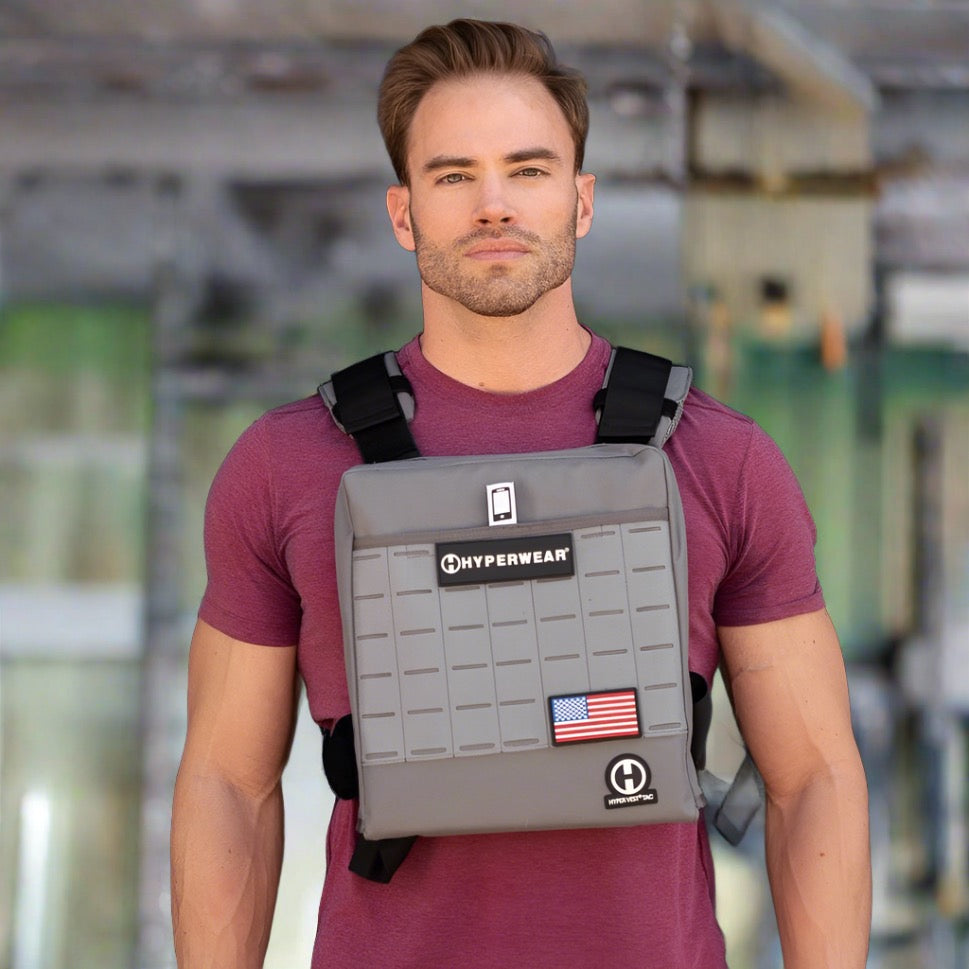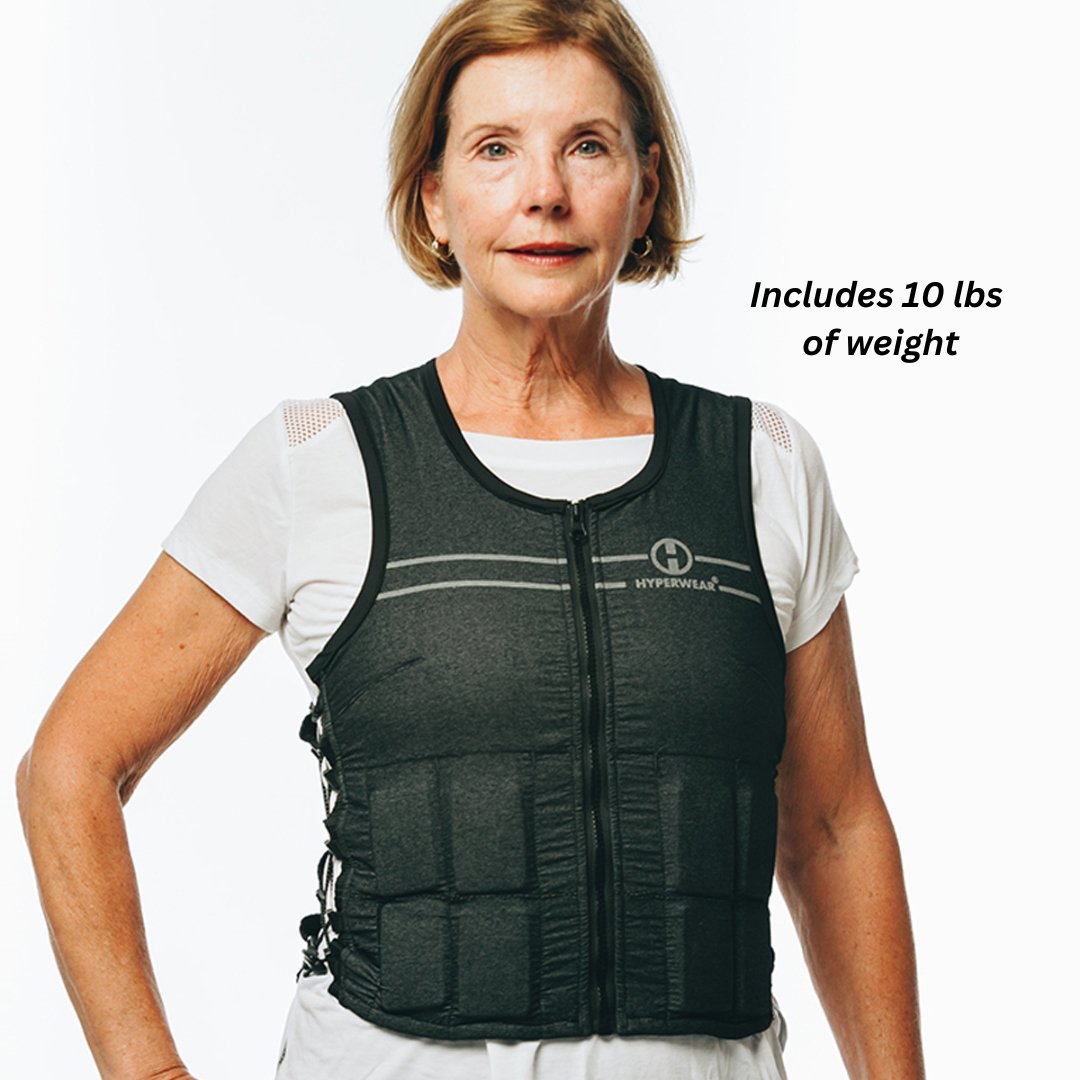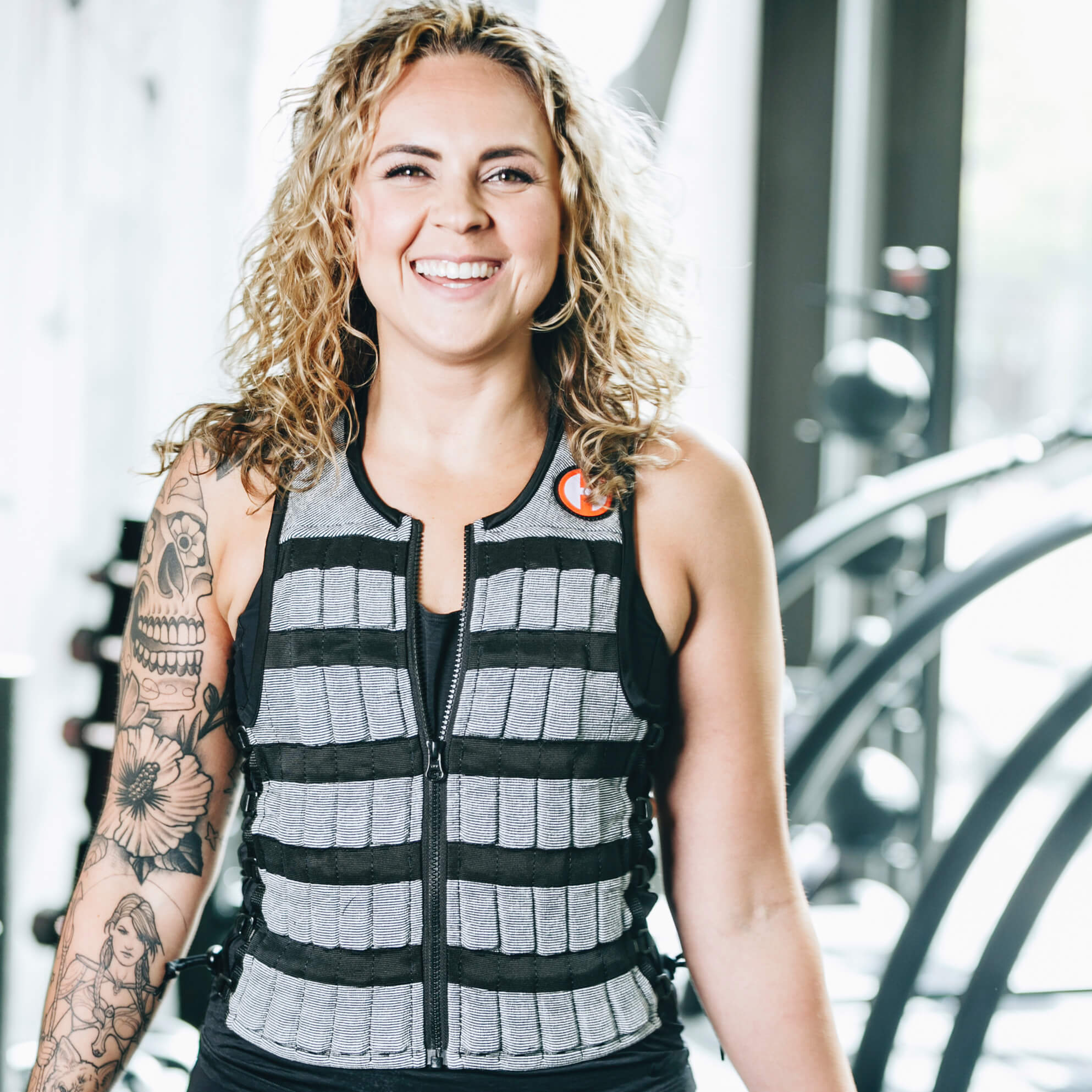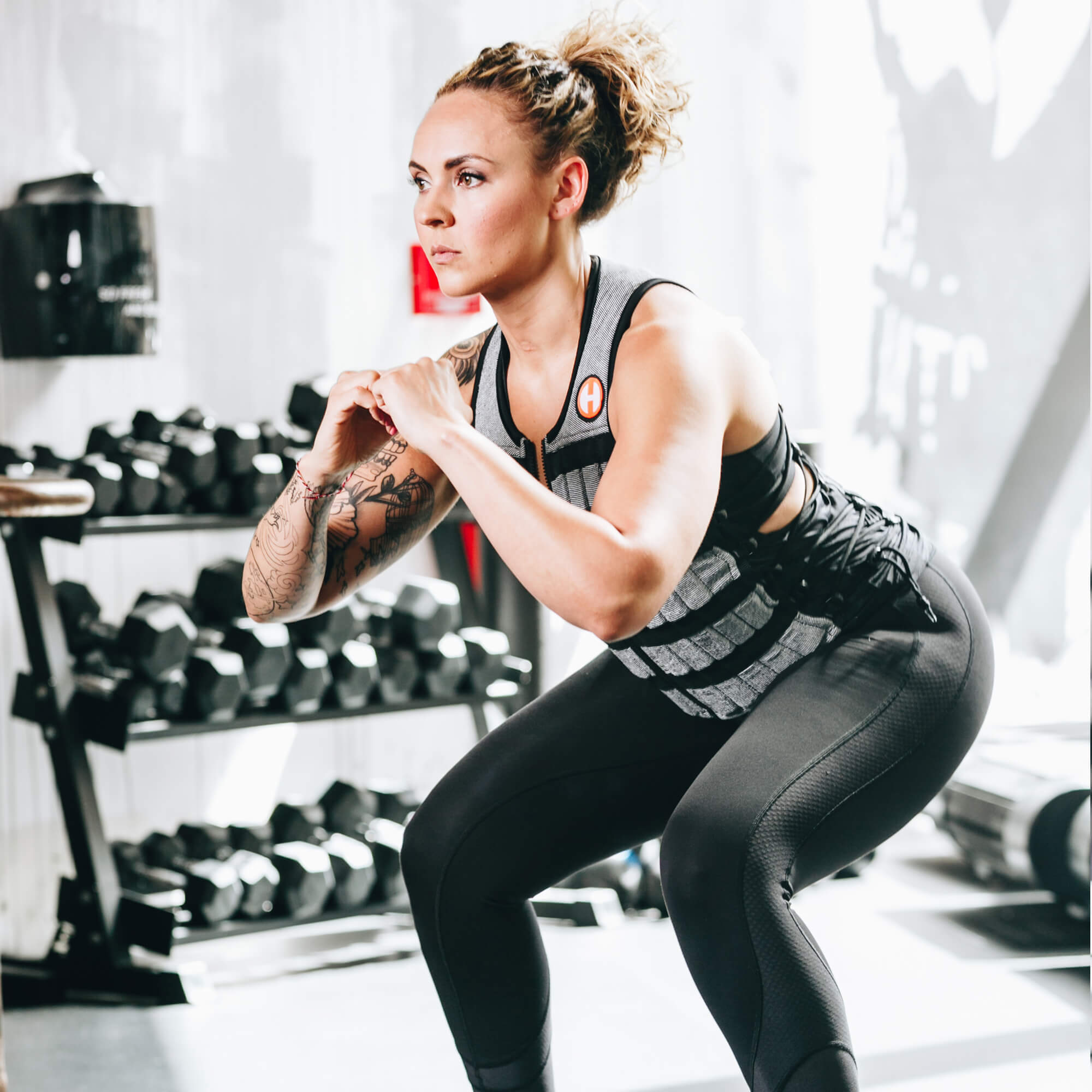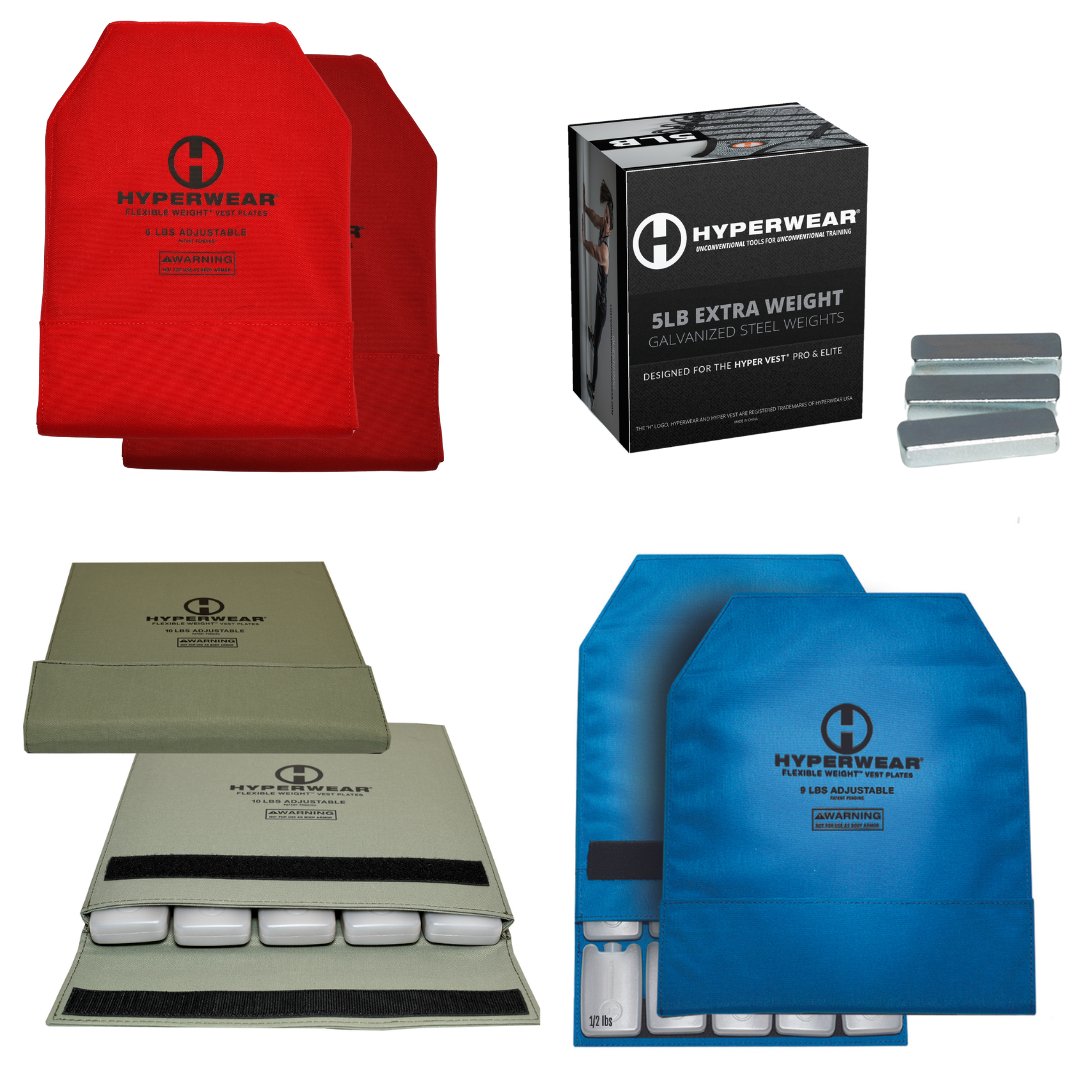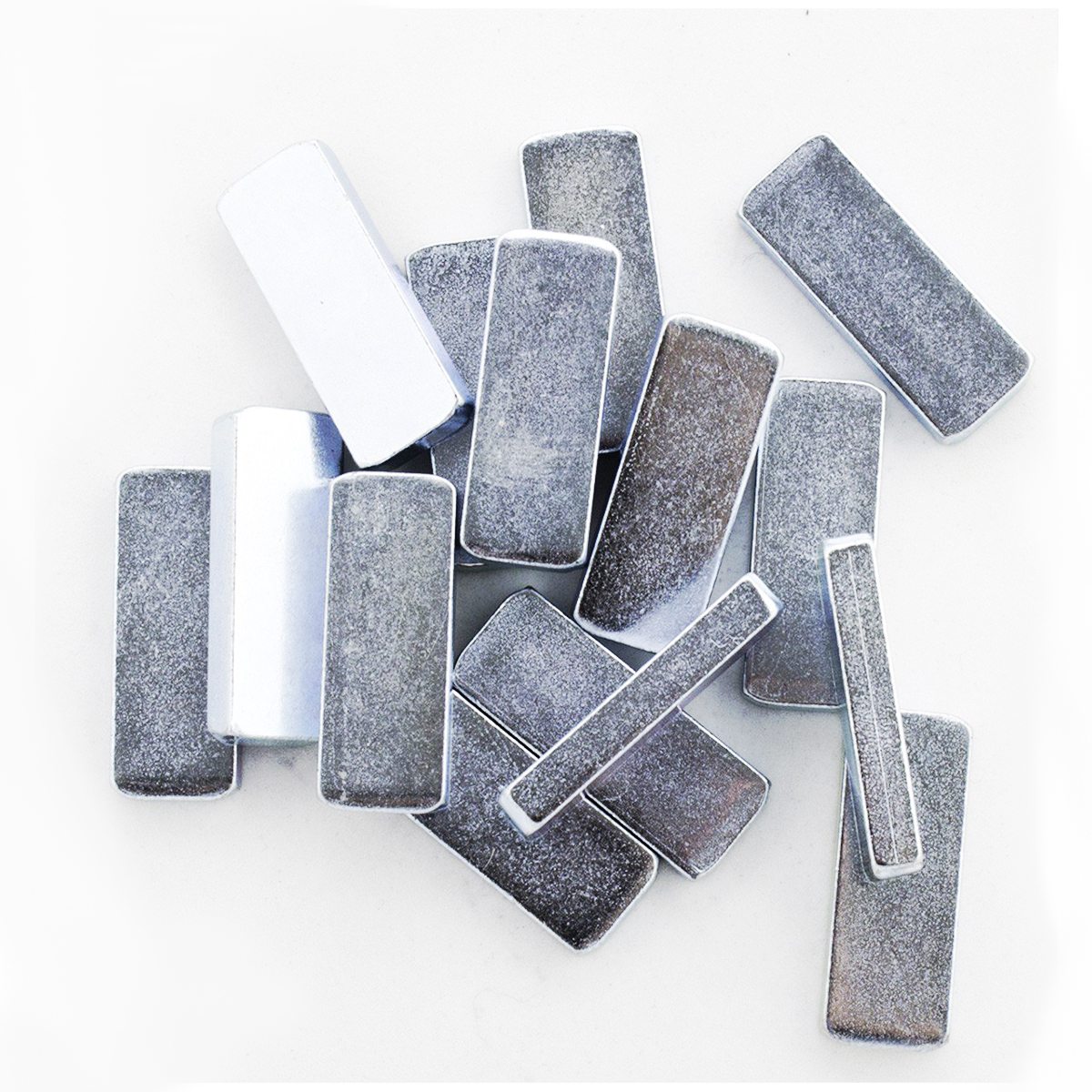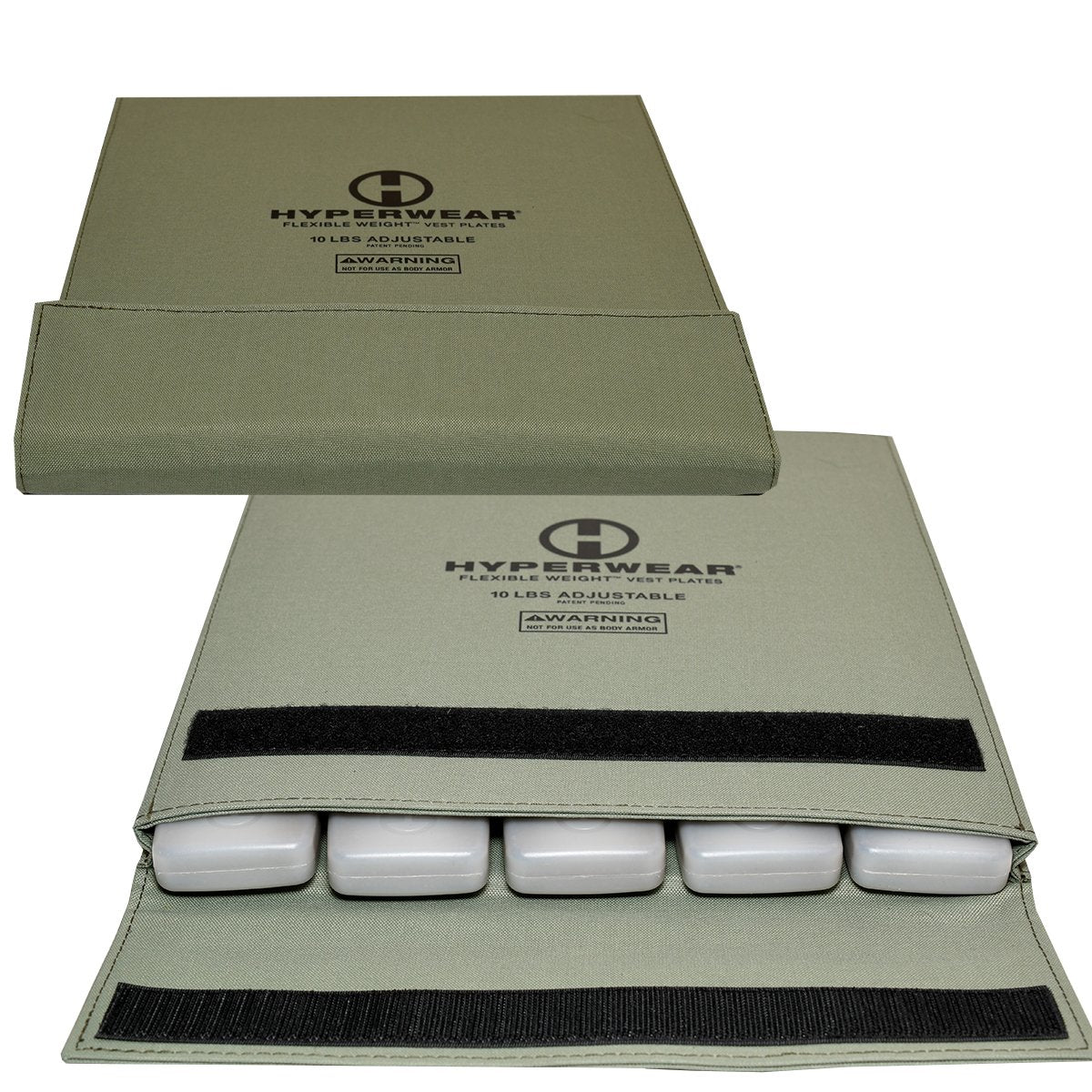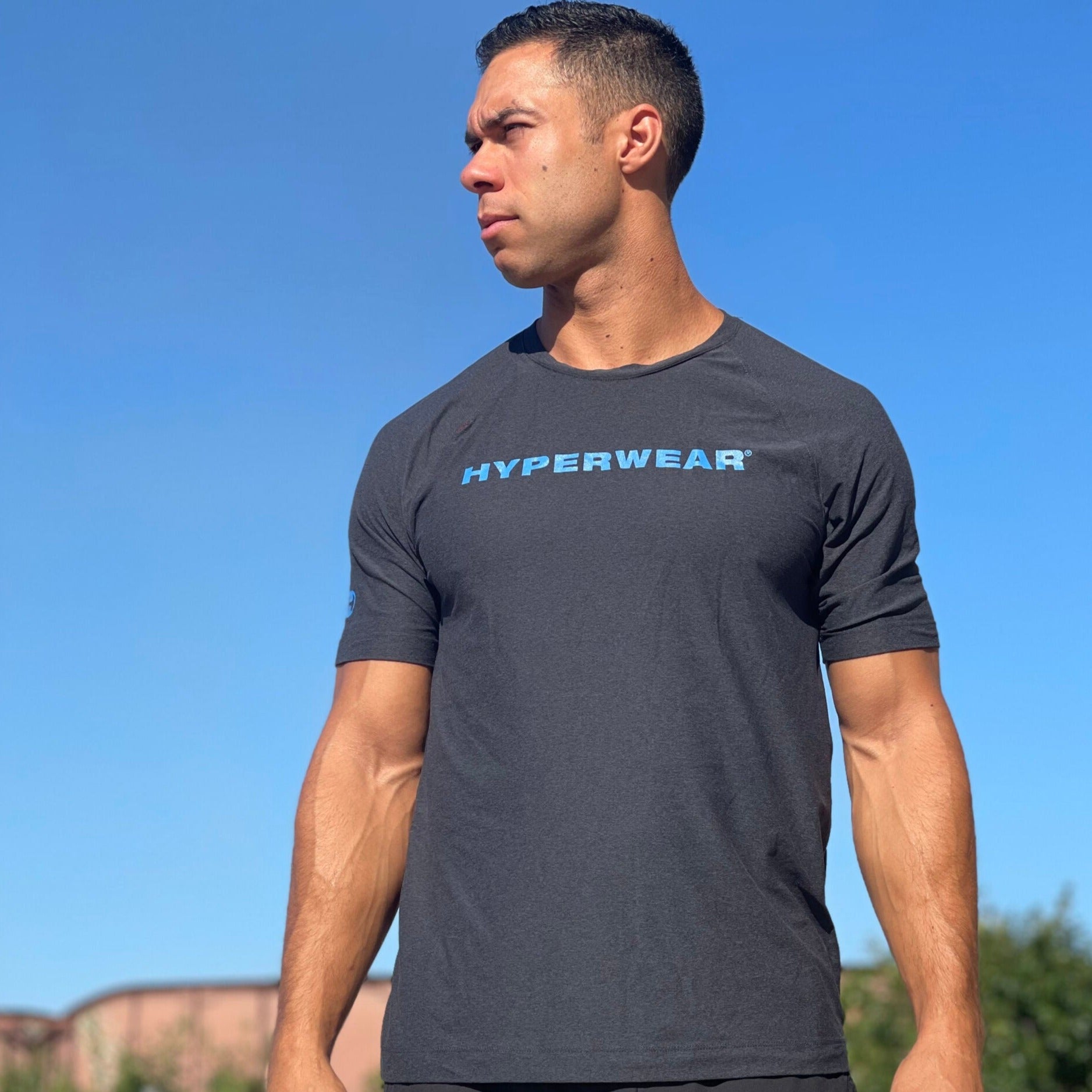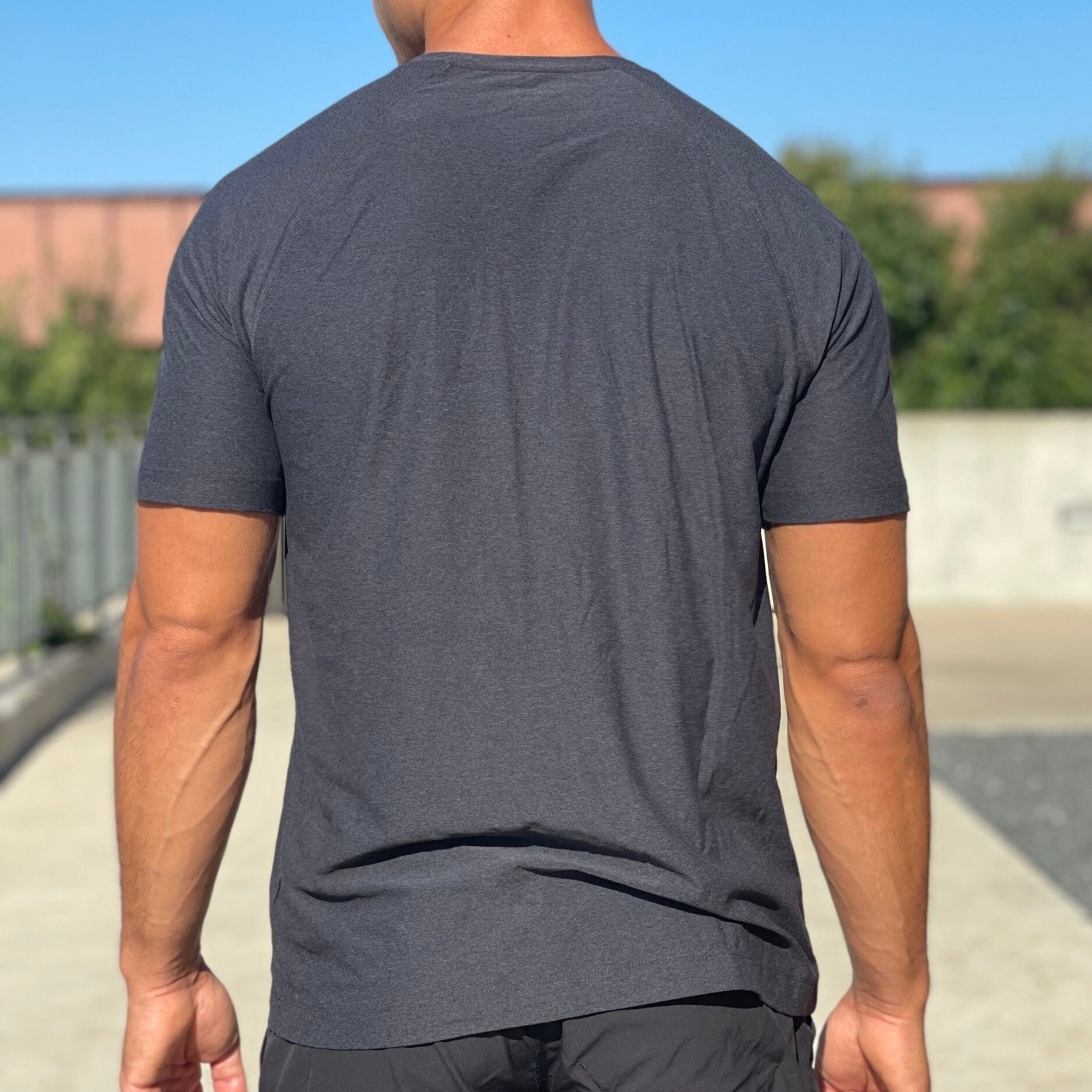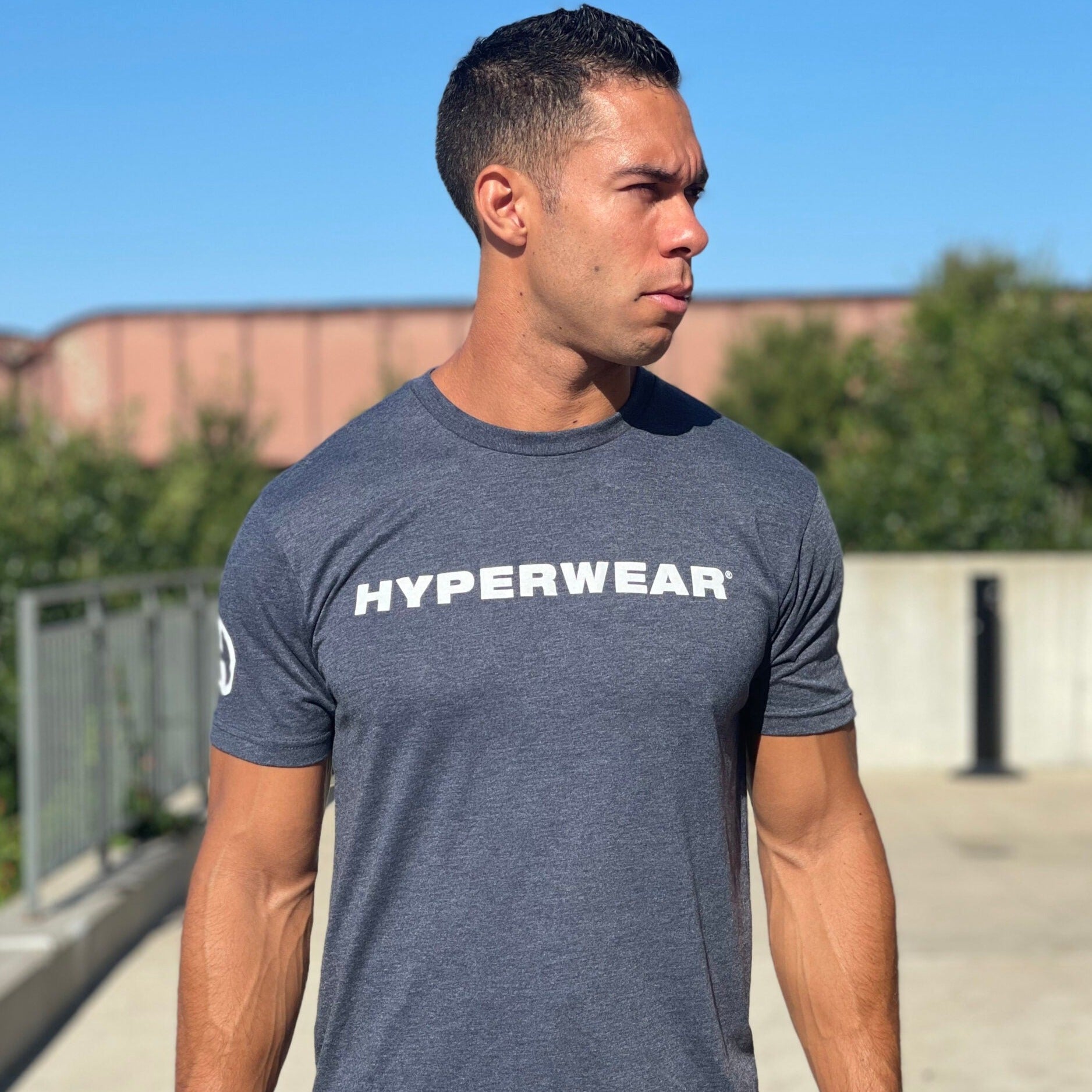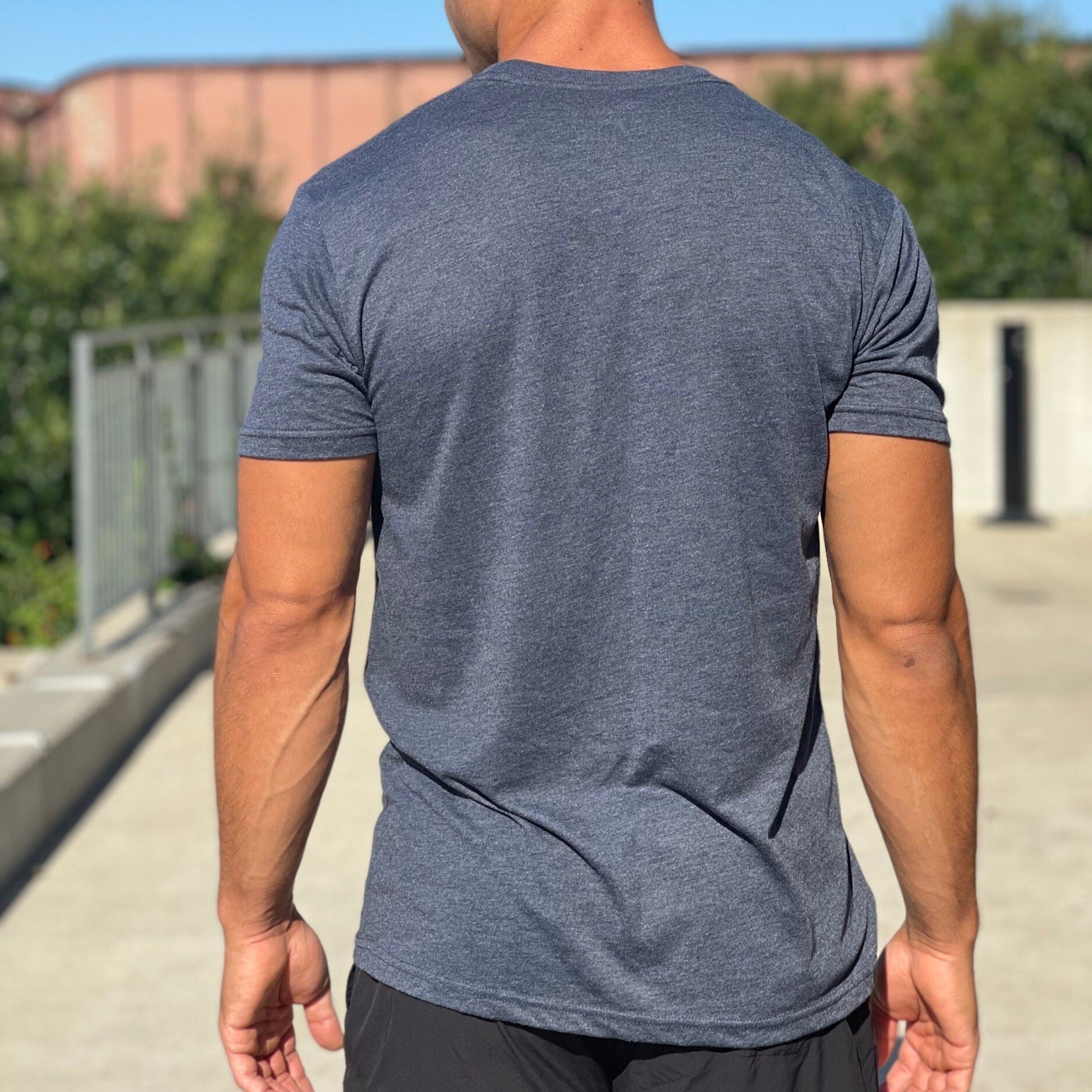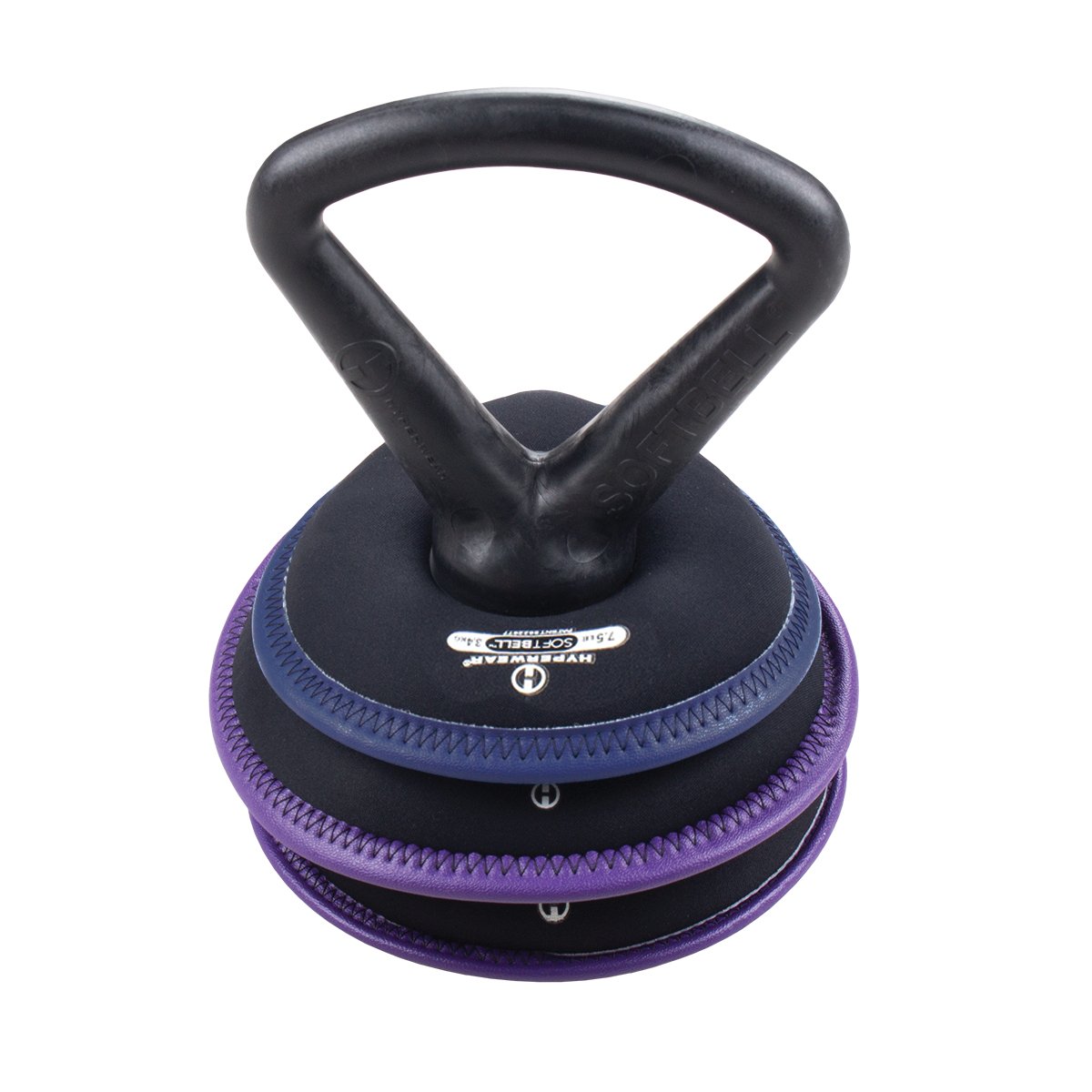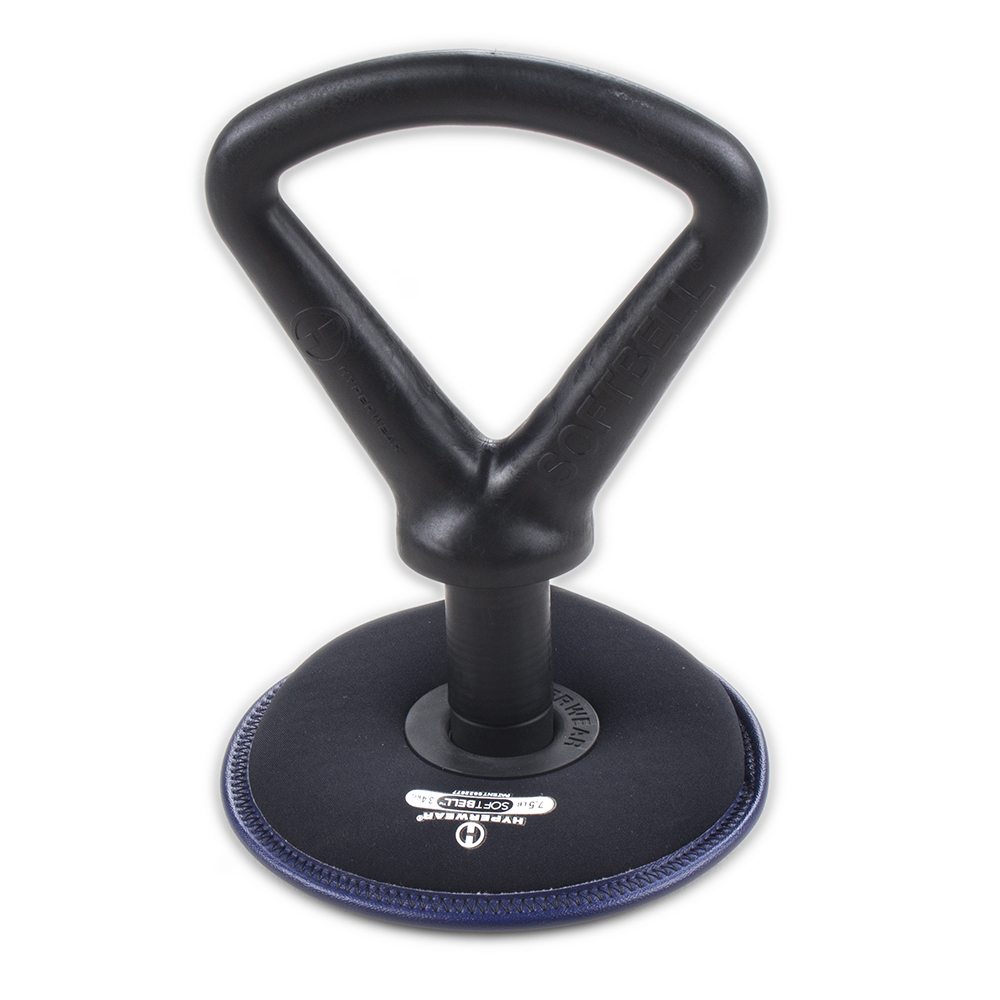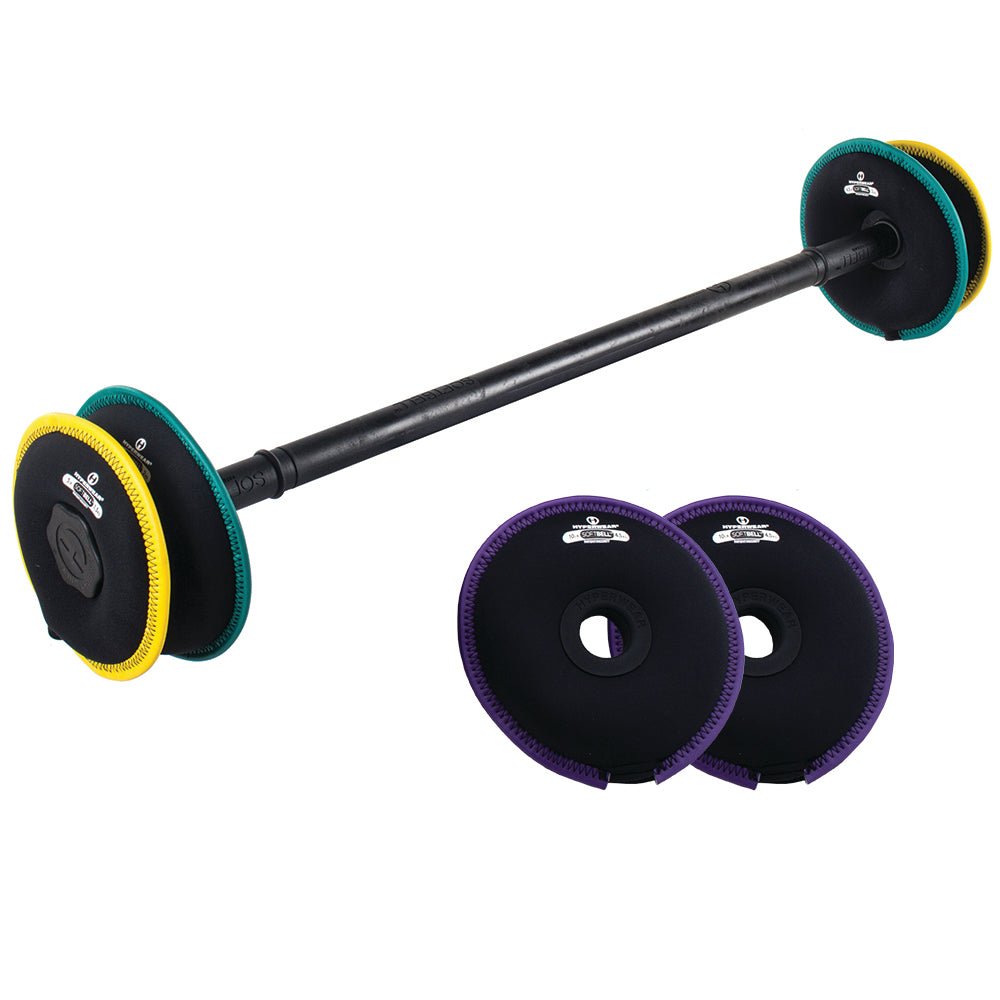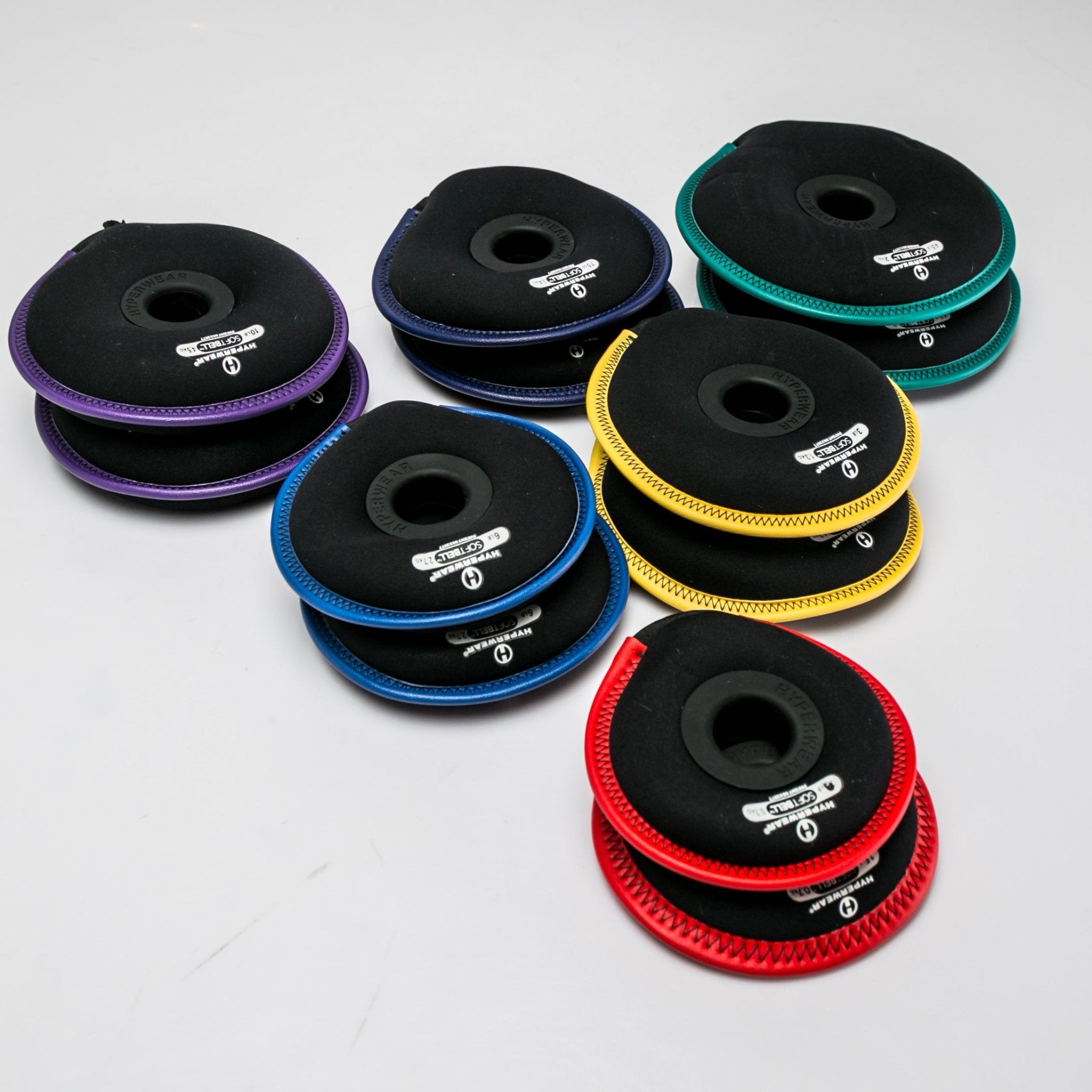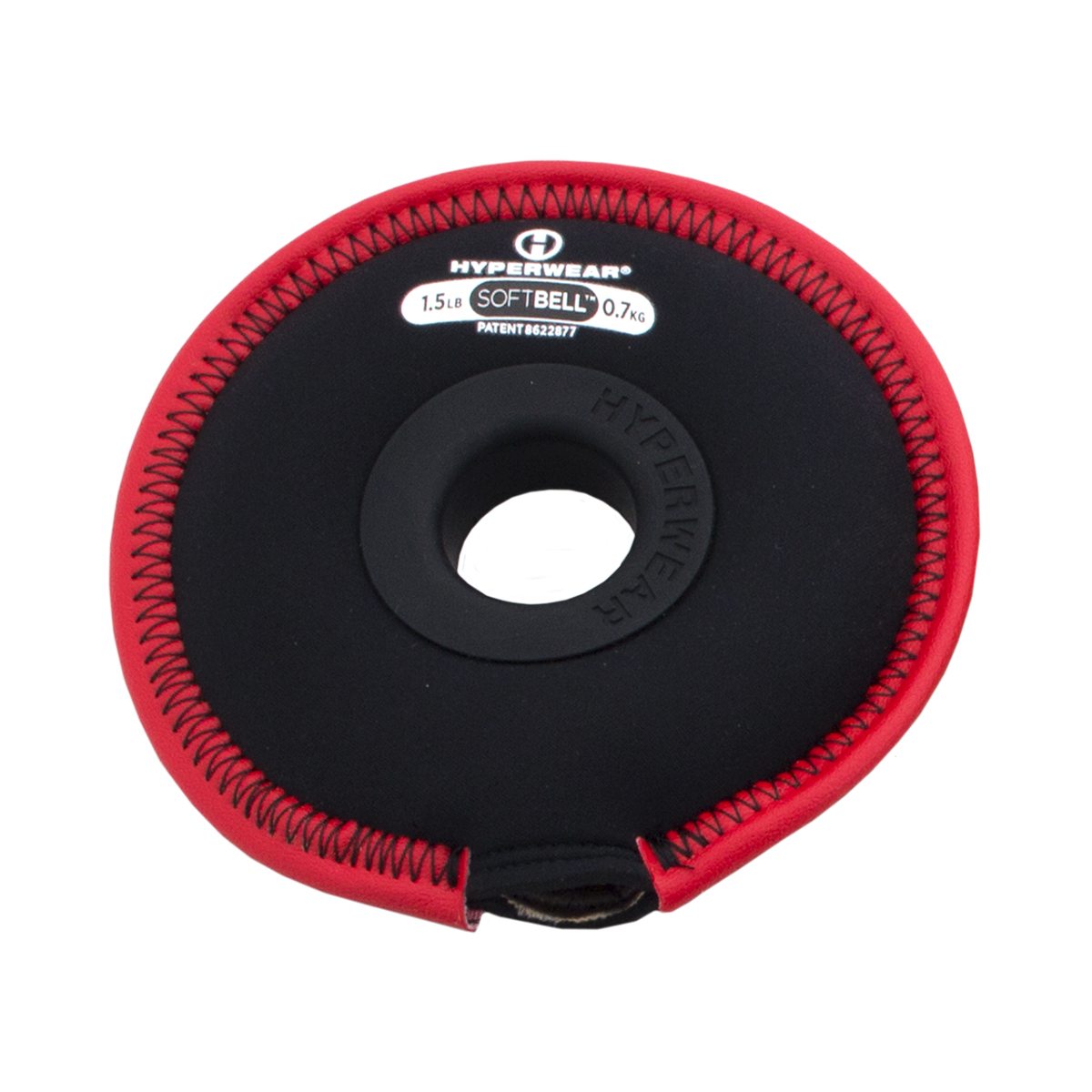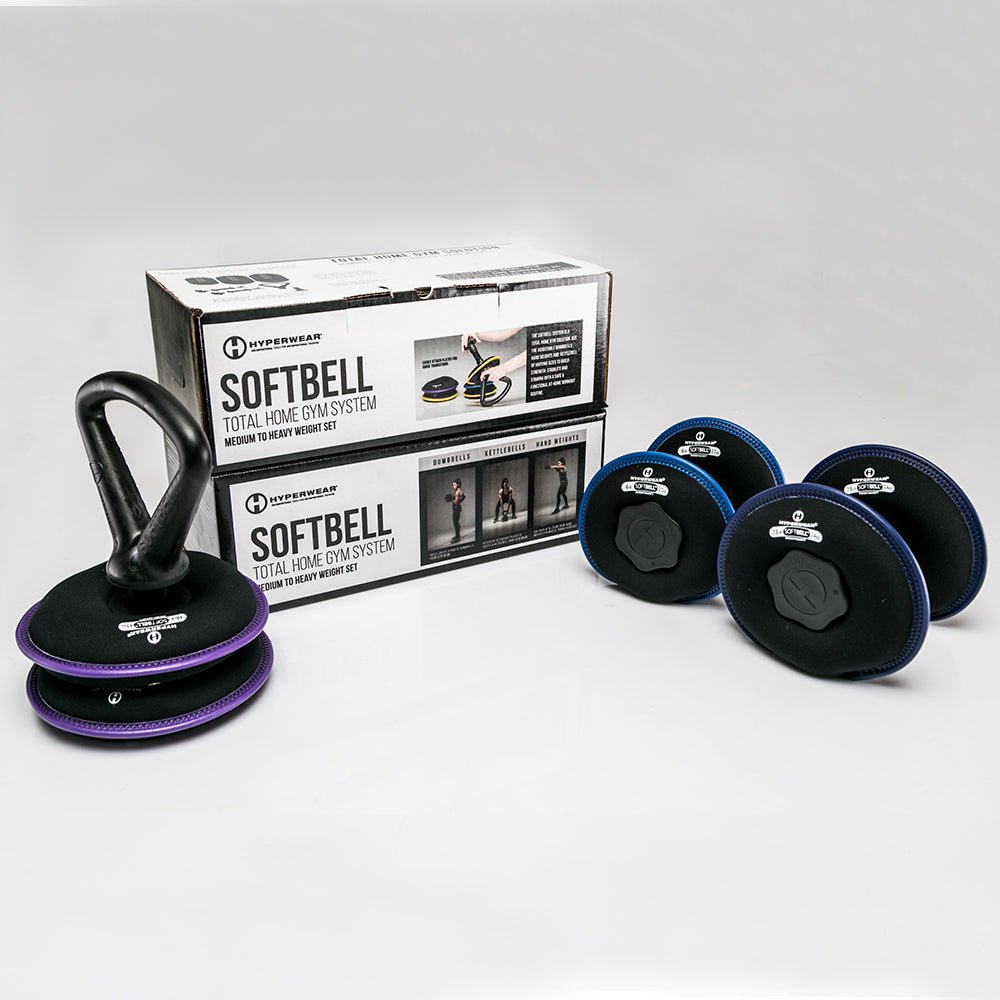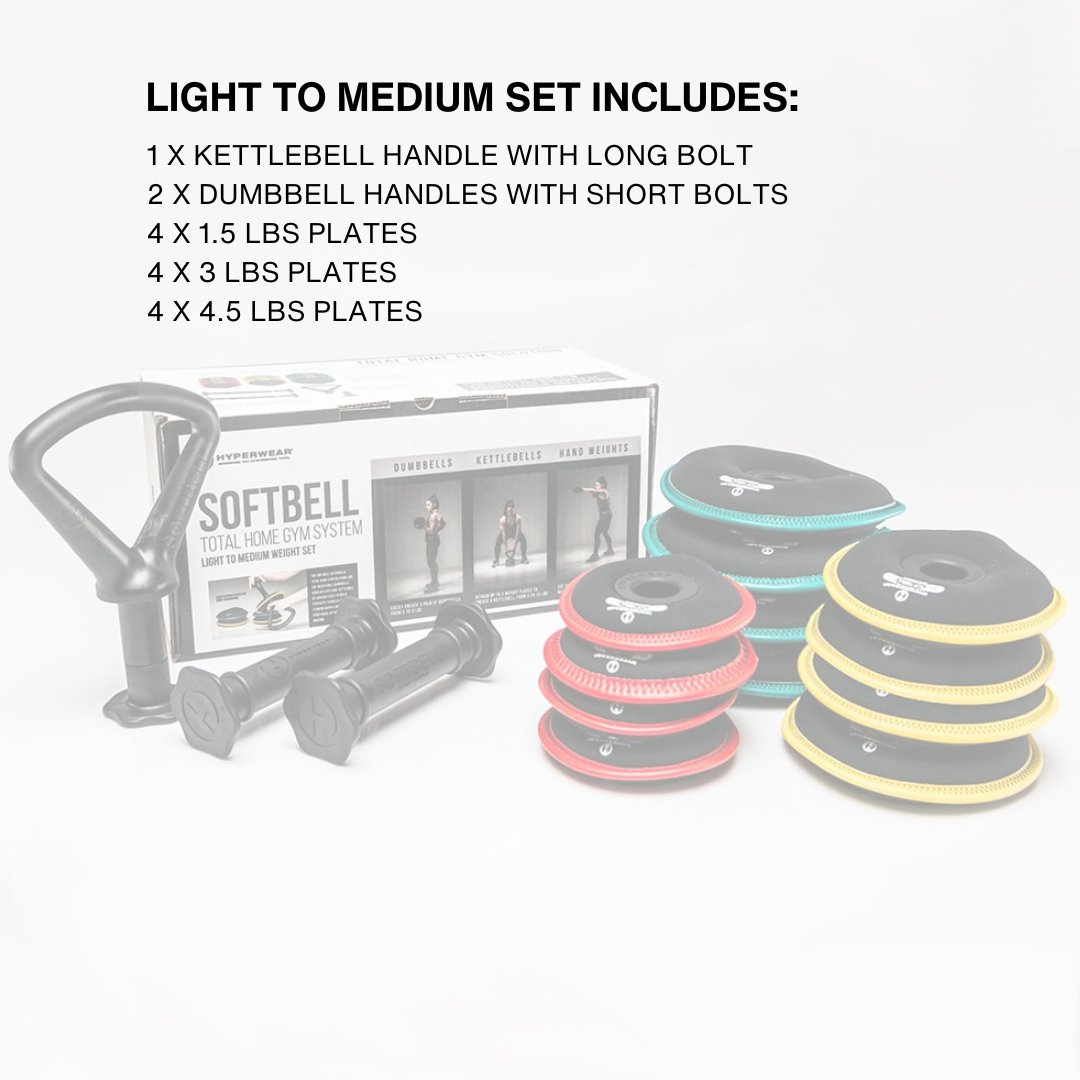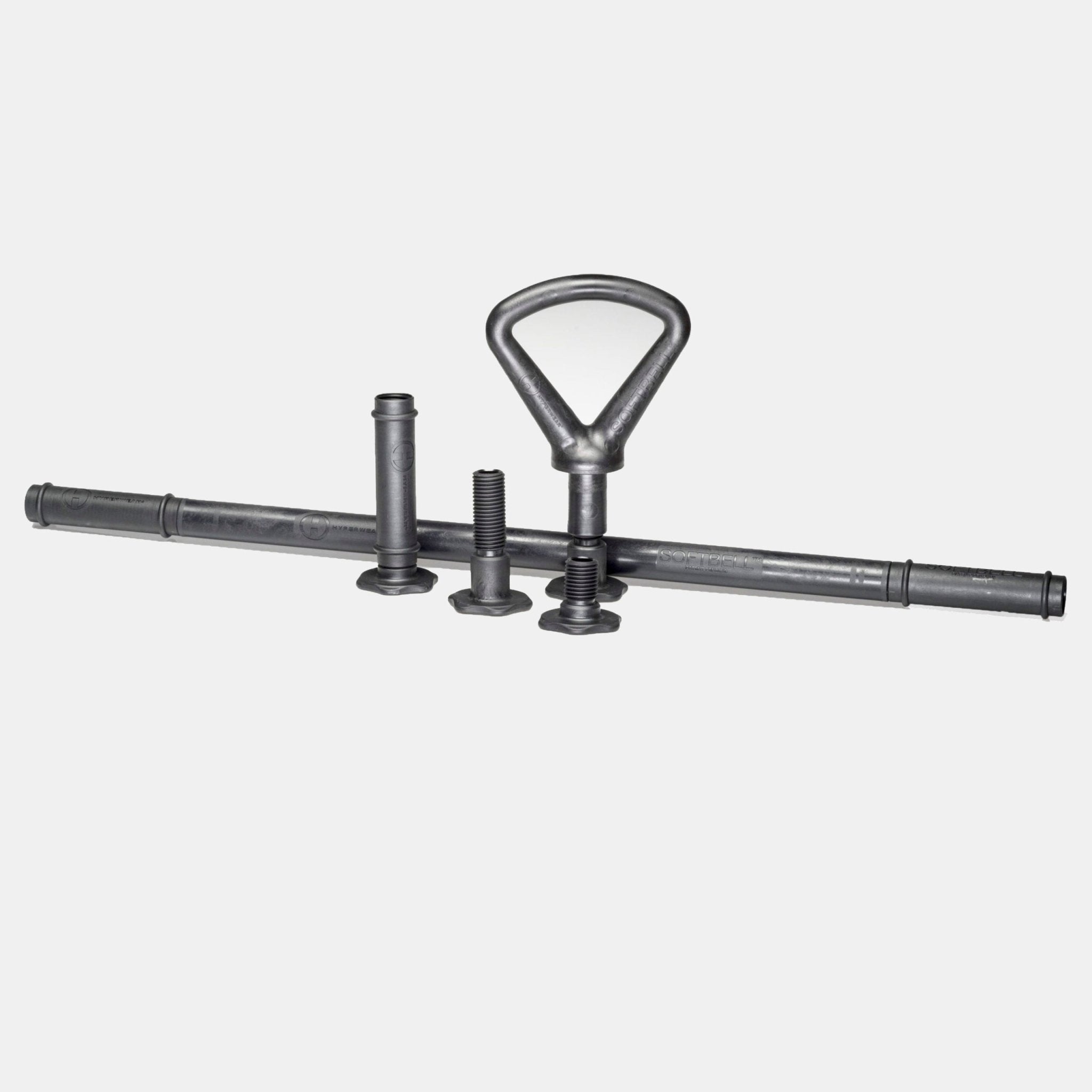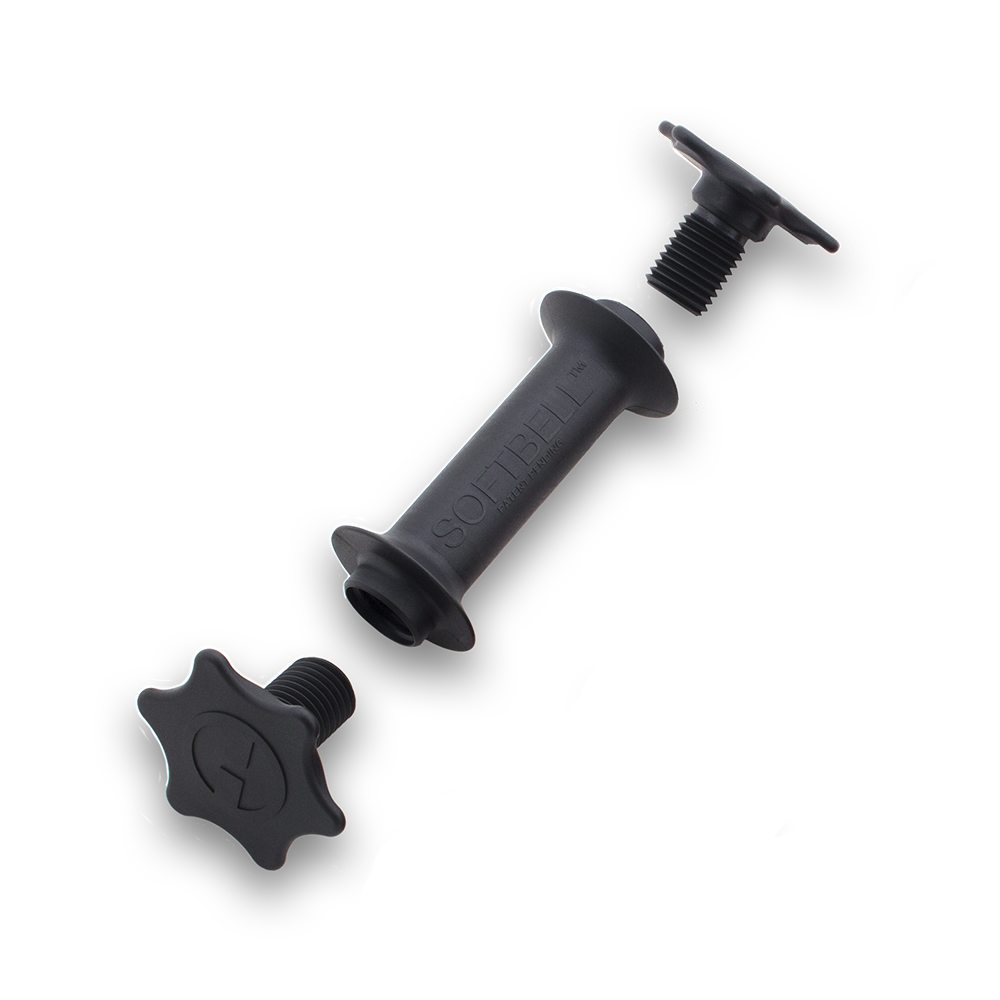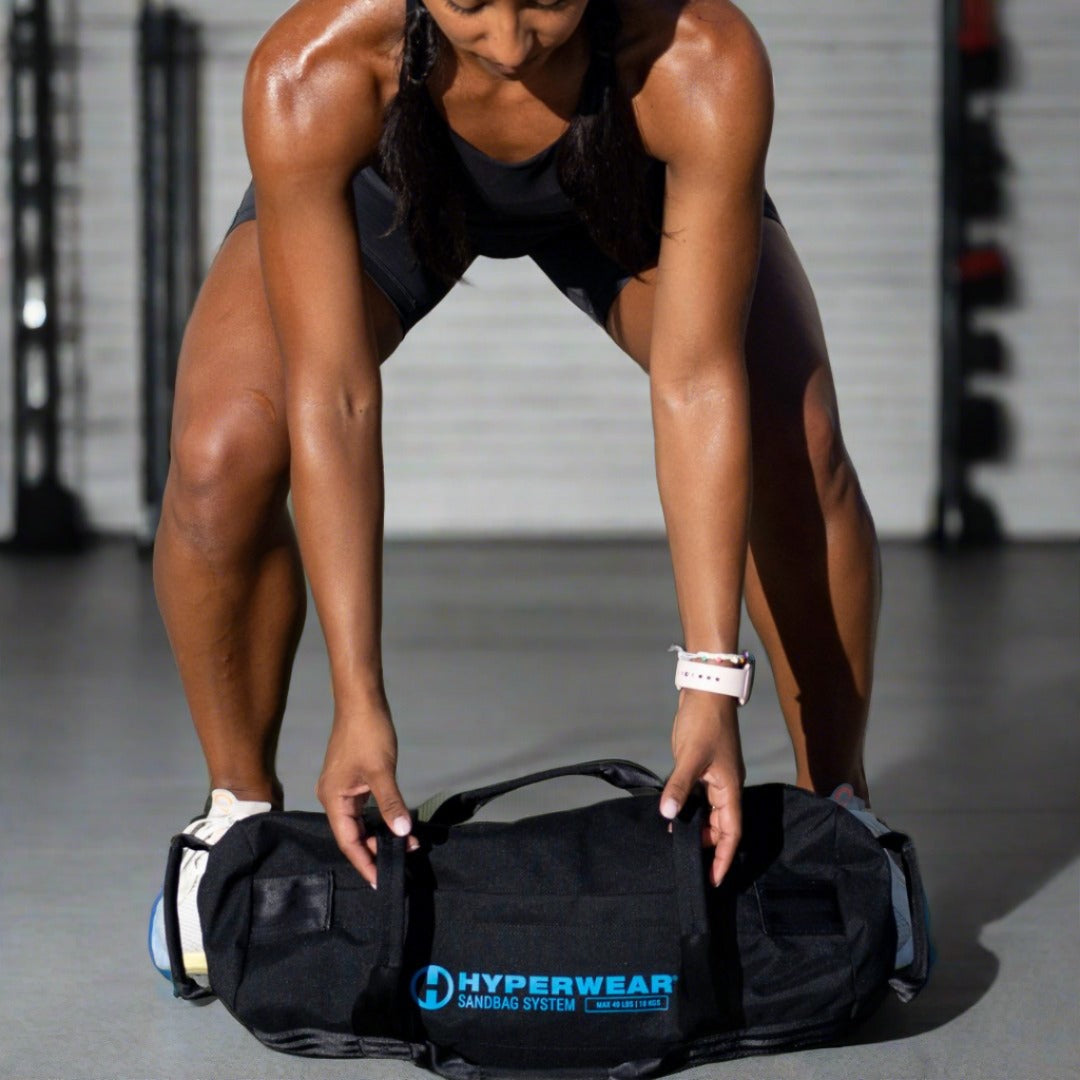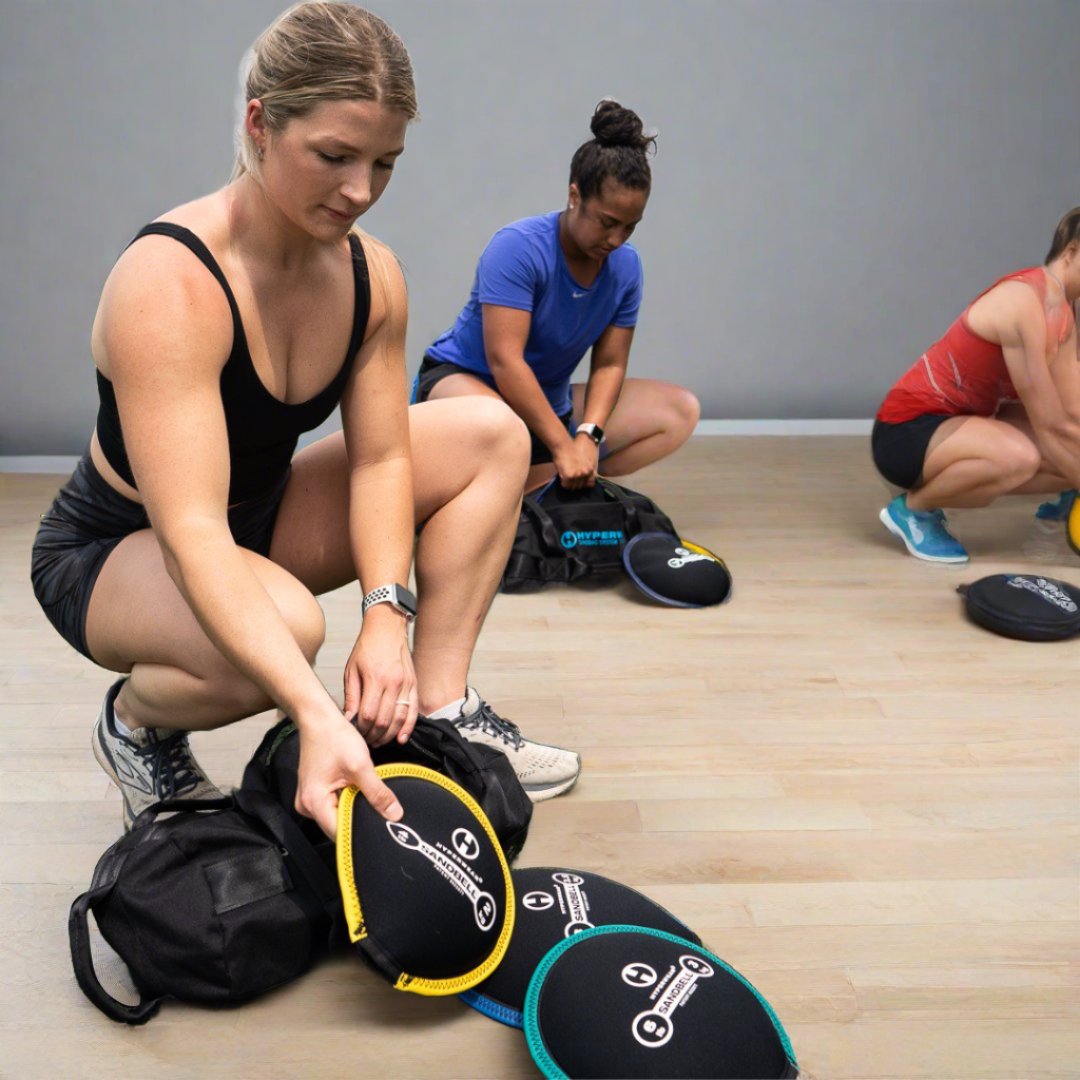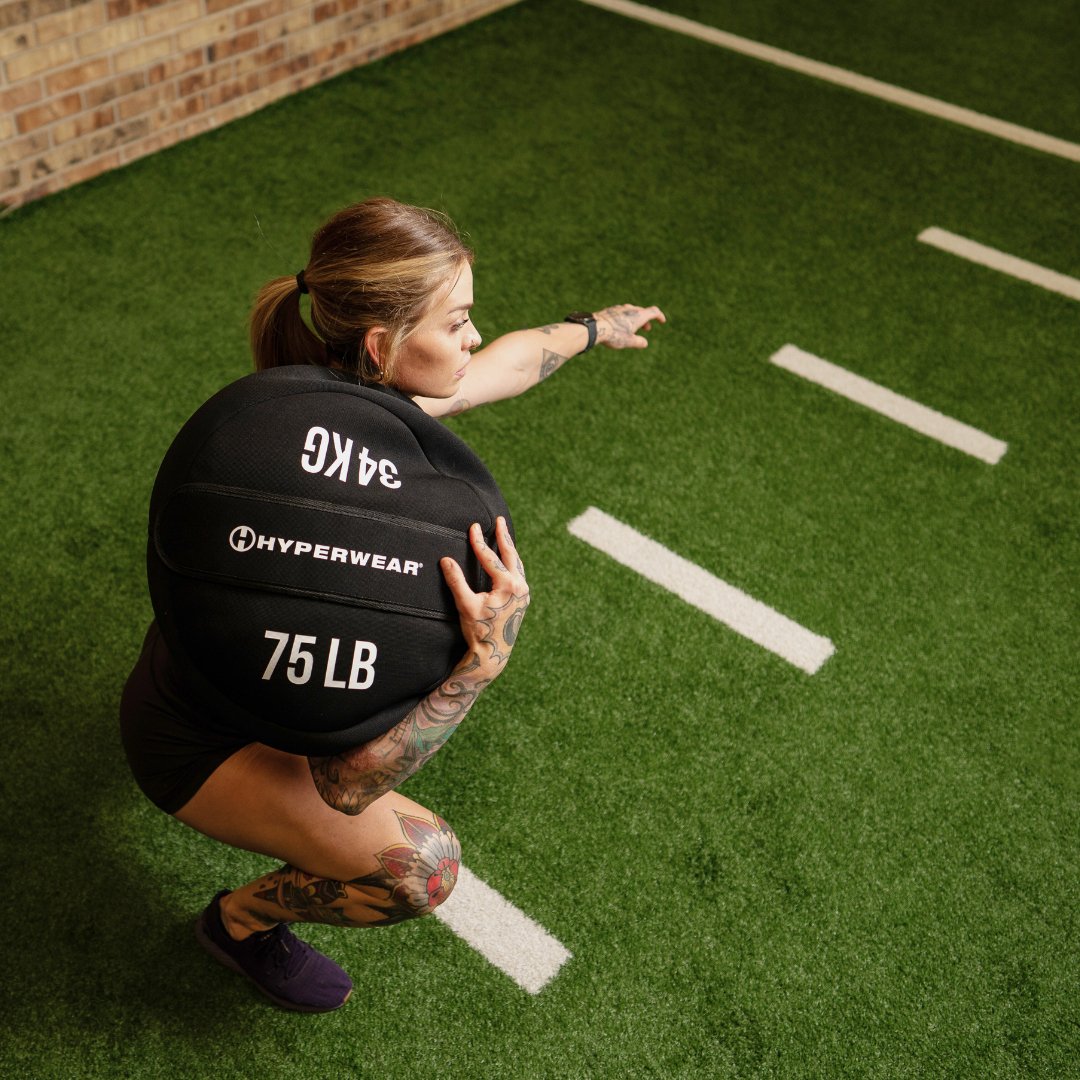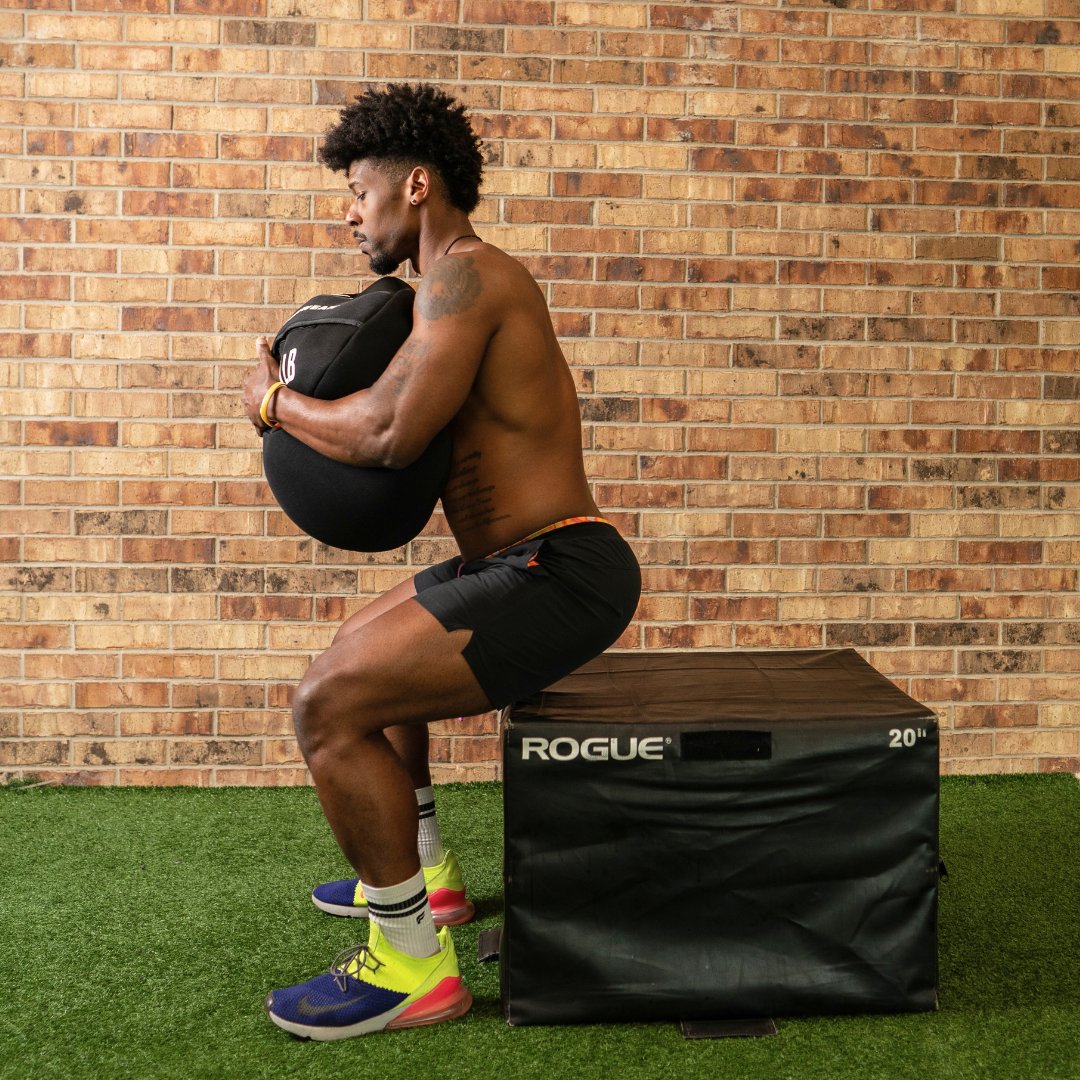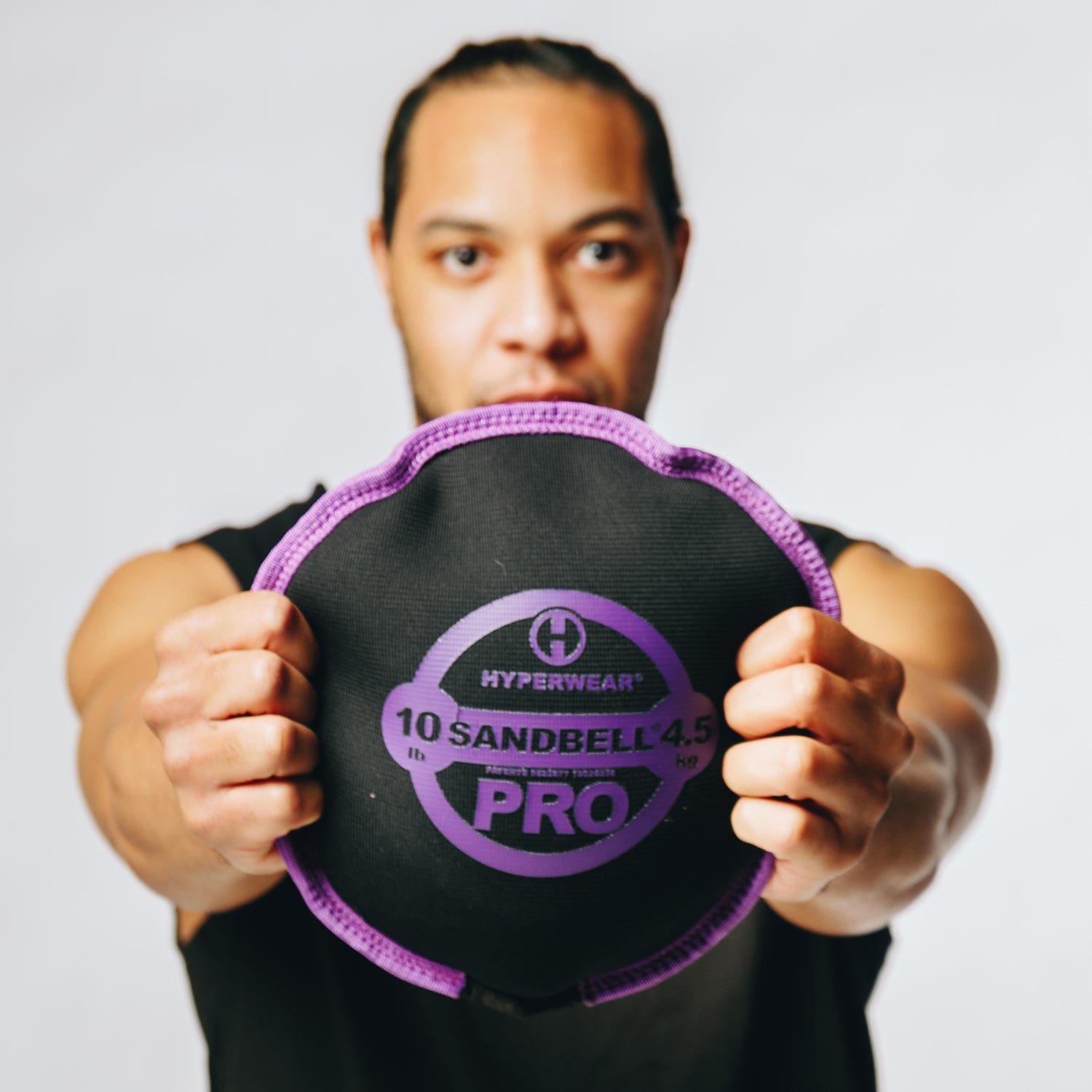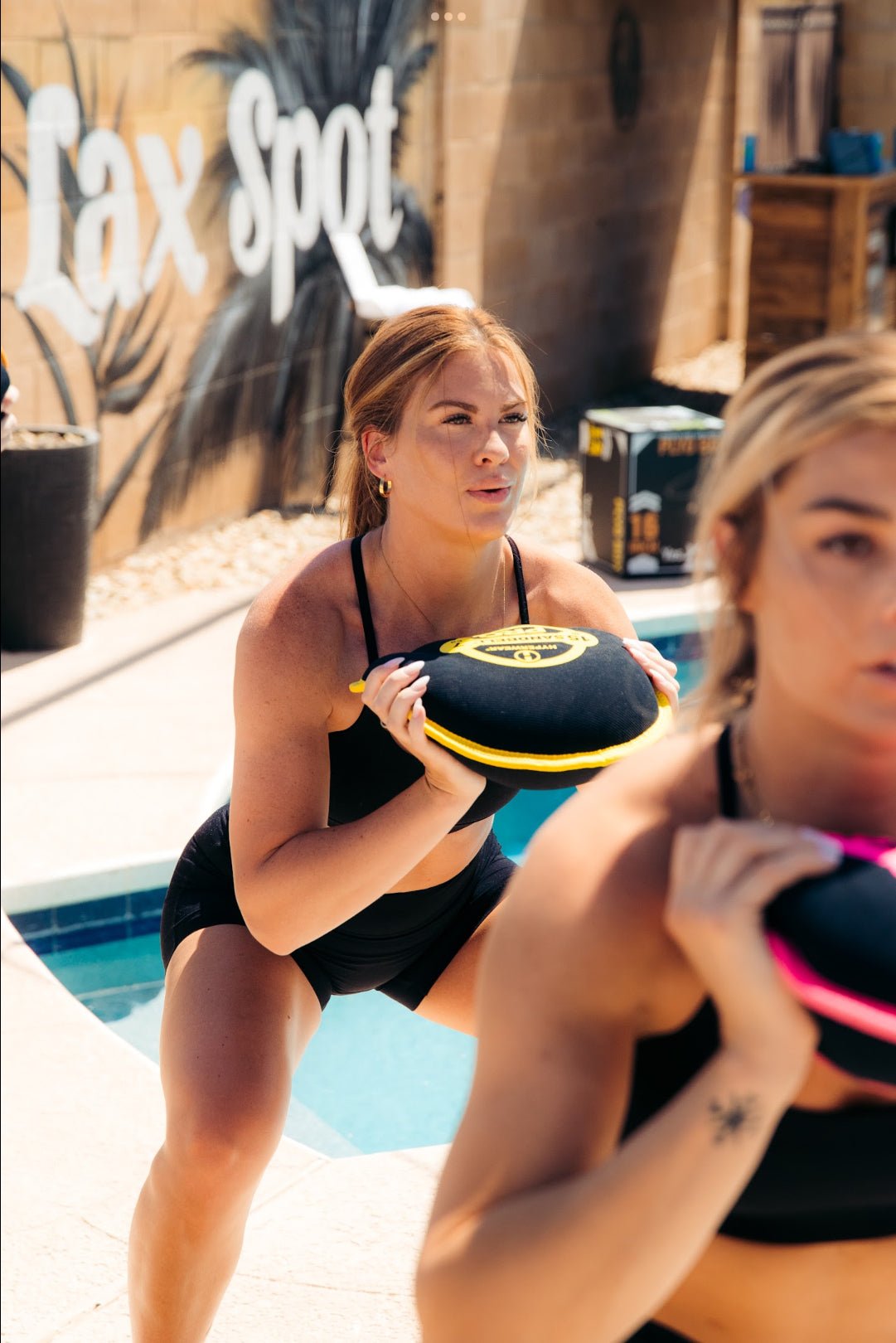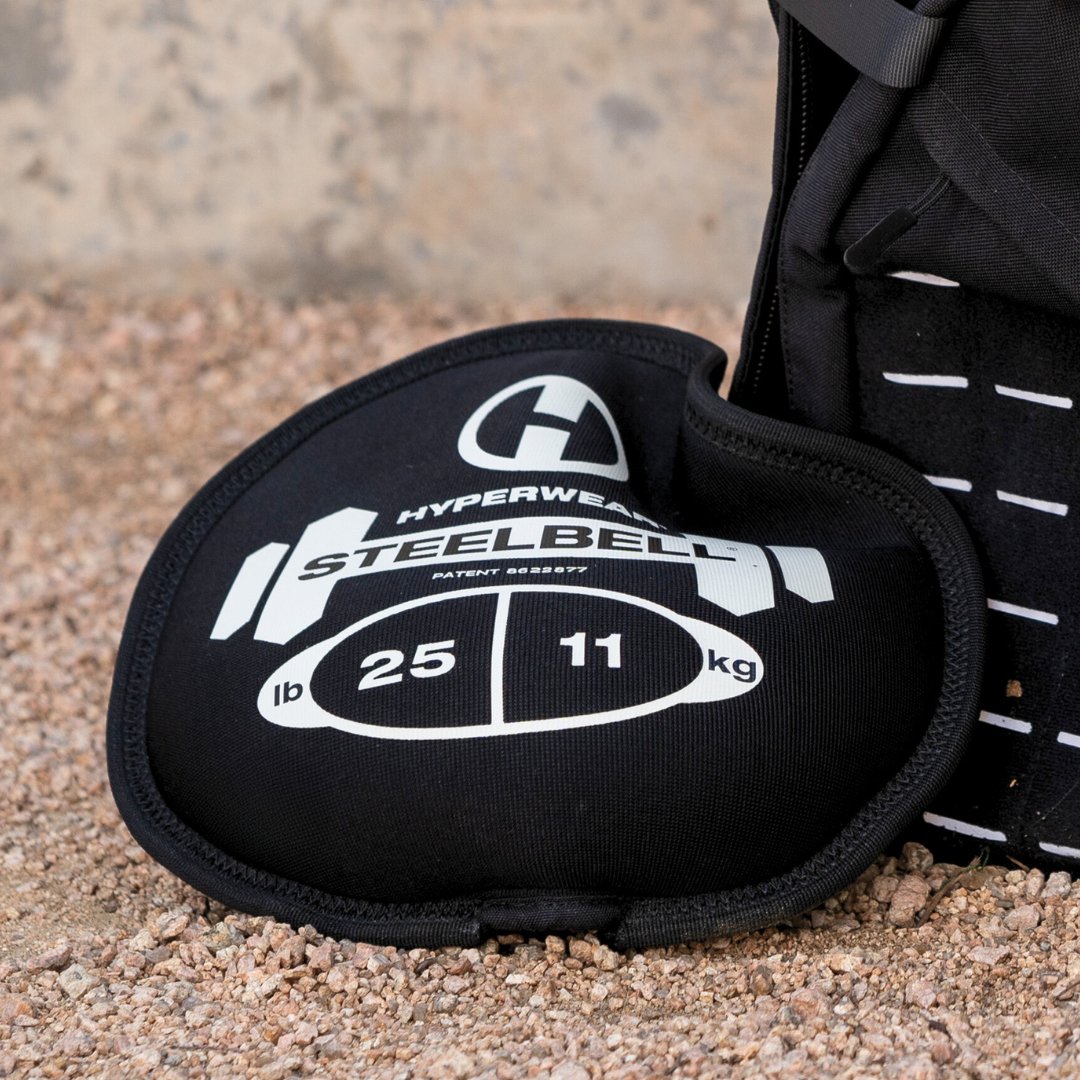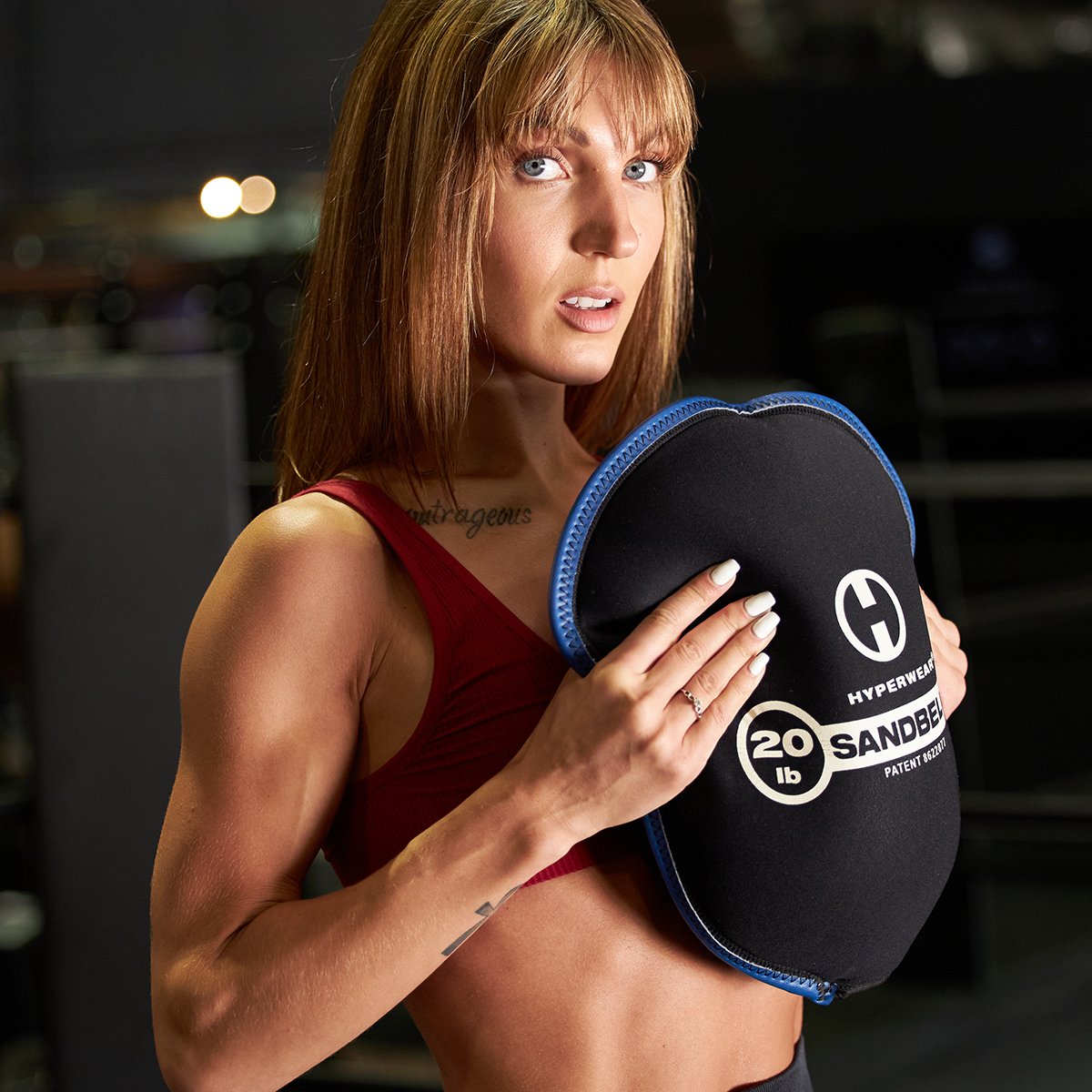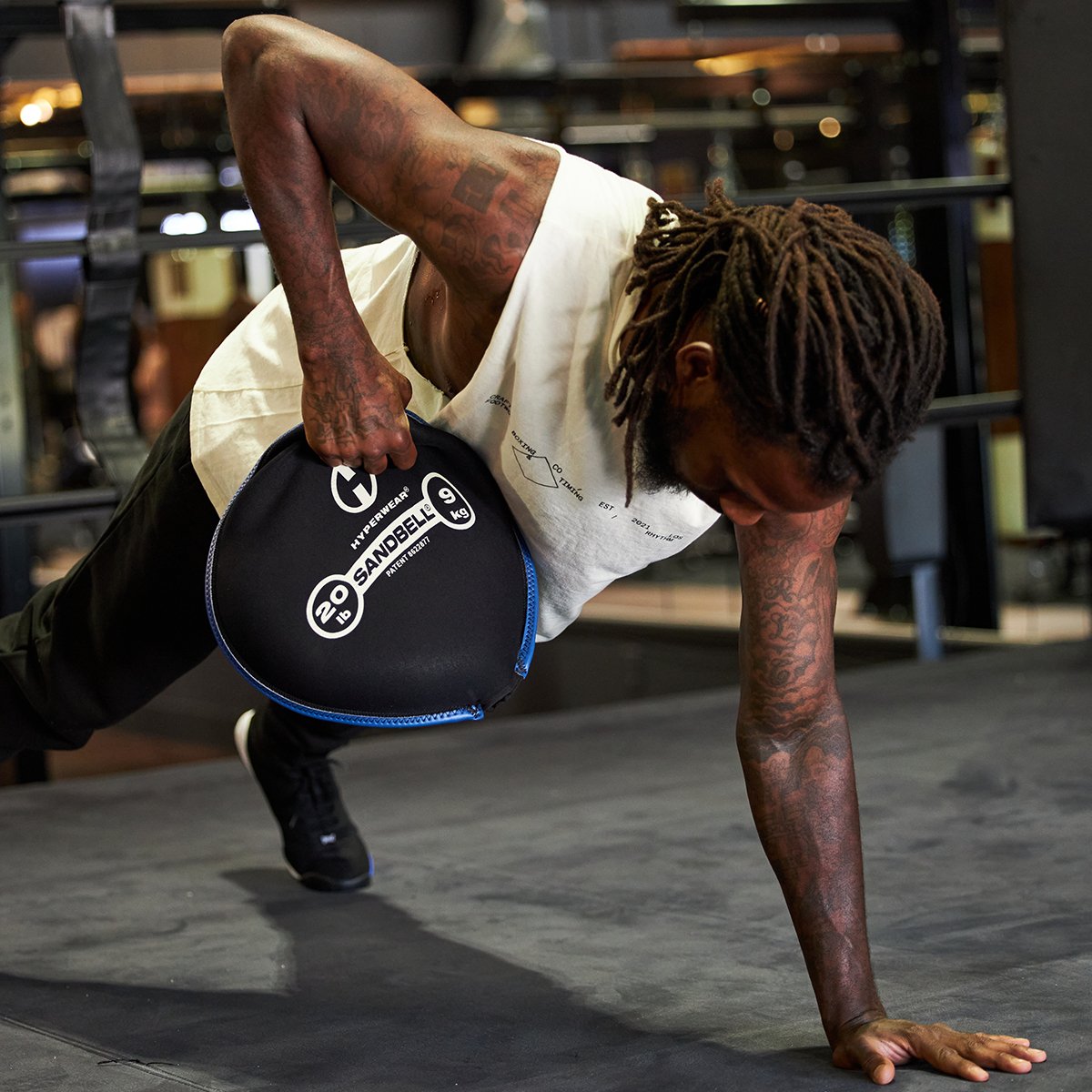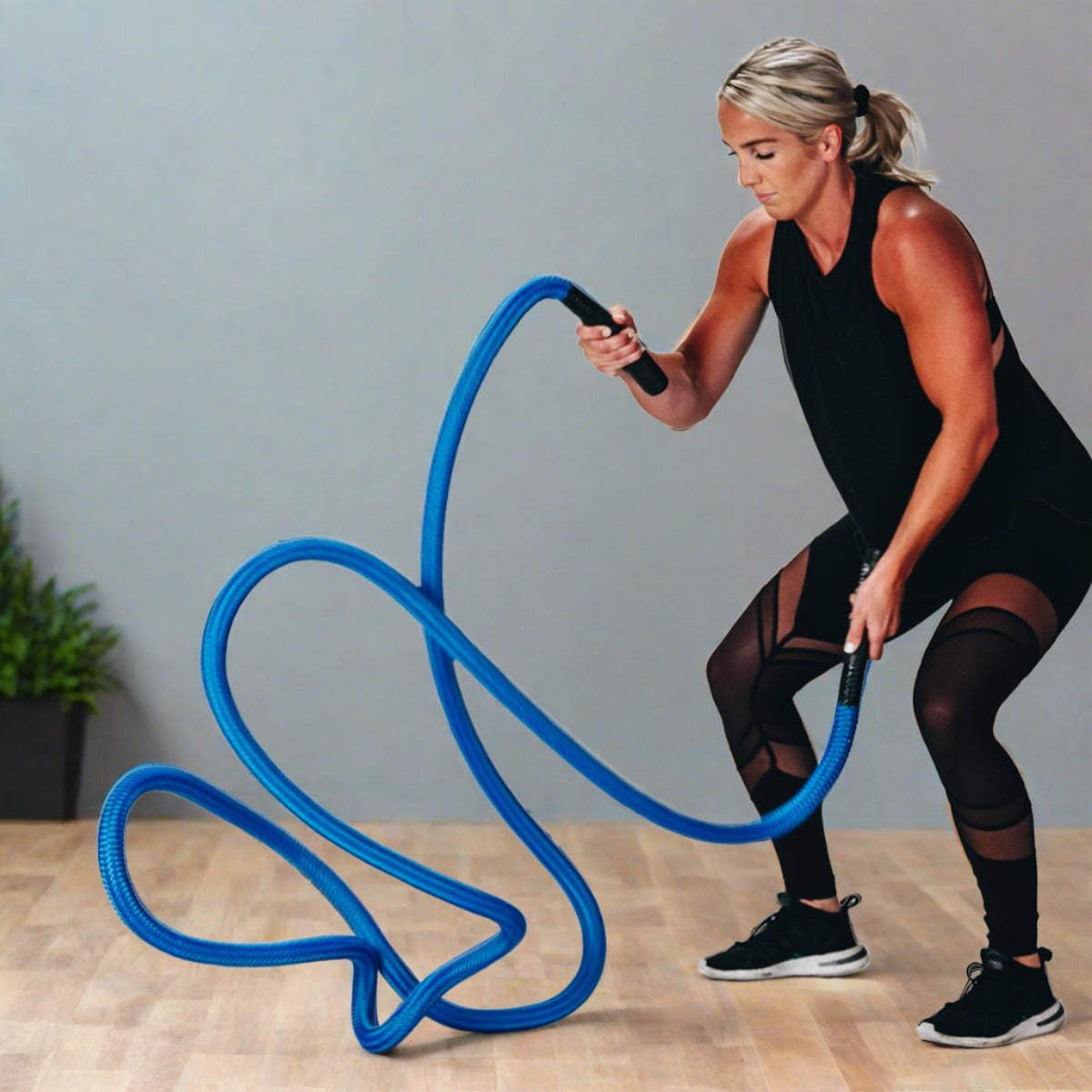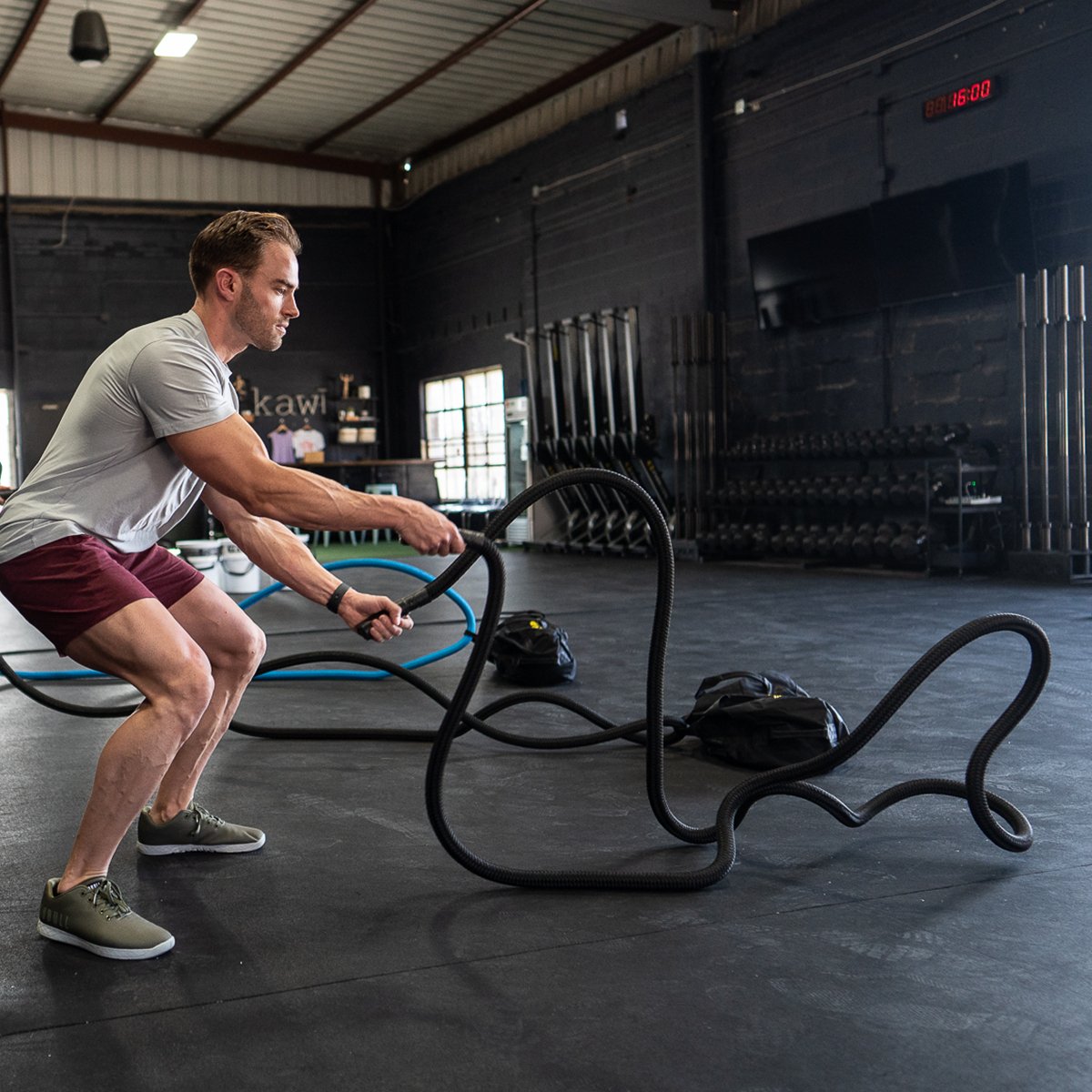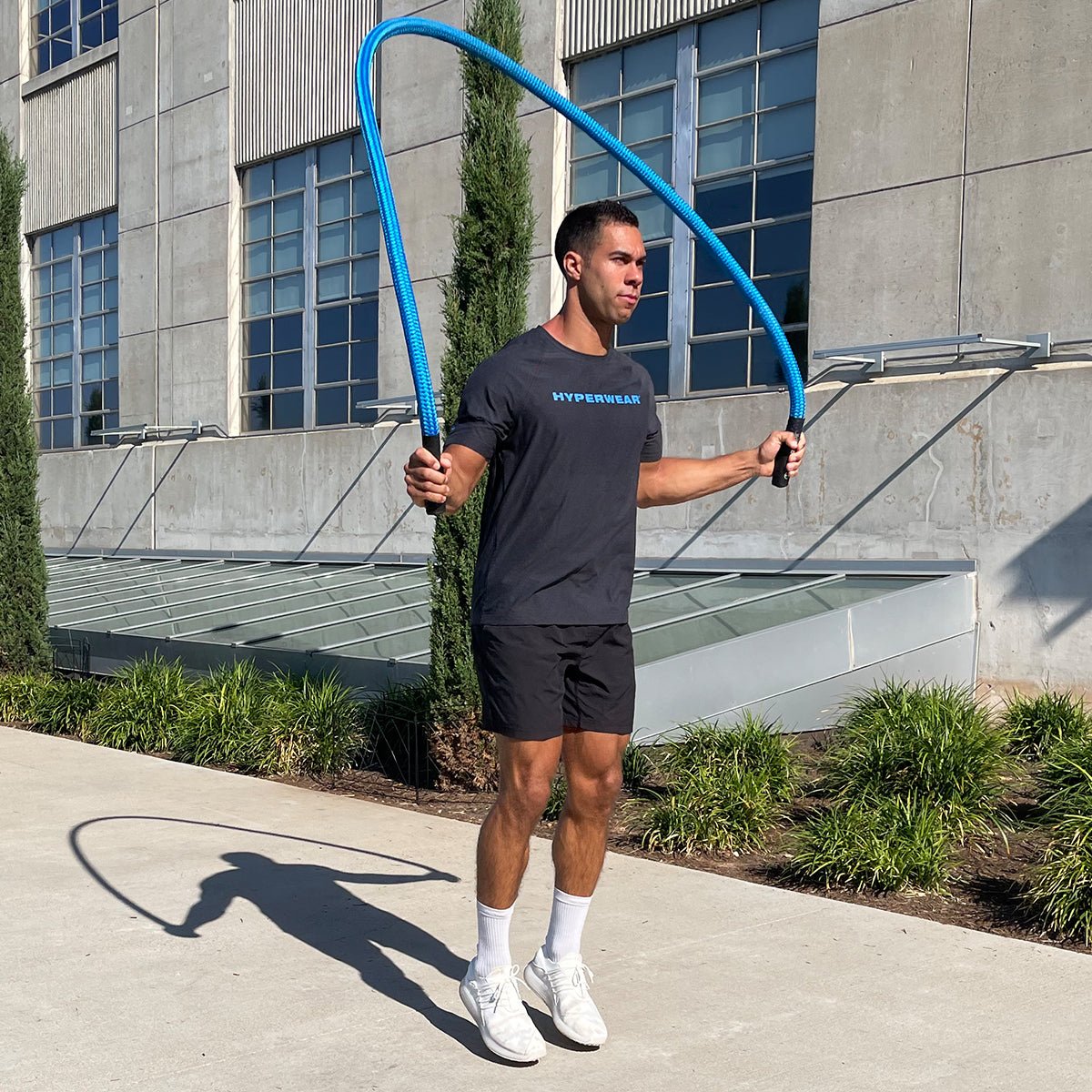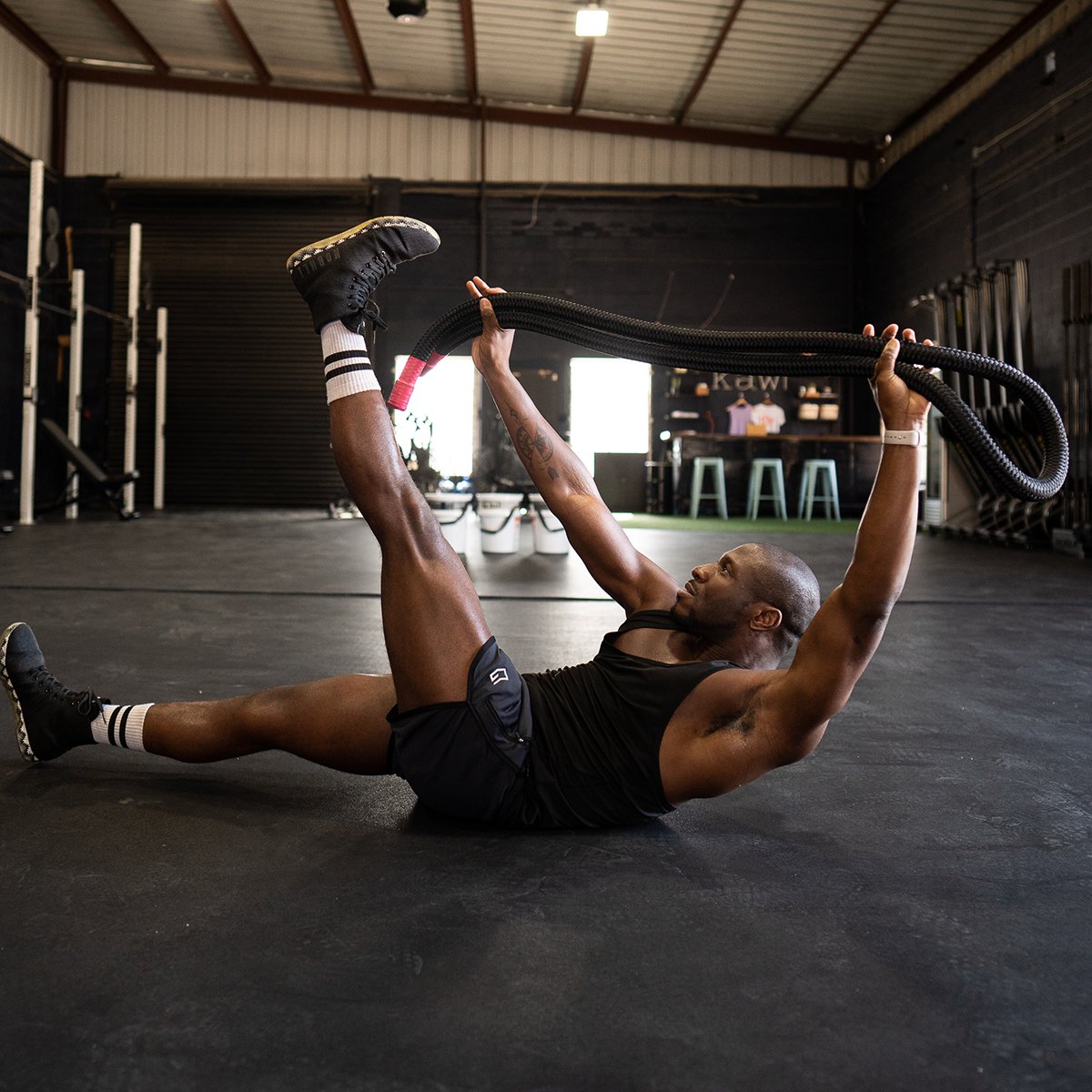Youth strength training- is it safe, is it not safe, should kids be doing it?
Not only are we about to head into a new year, but we're also heading into a new decade- the 2020s.
I don't know about you but that's starting to sound rather distant in the future, even though we're here now.
Like all new decades, we usually schlep some cobwebbed and tarnished ideas that could use some tidying up.
Our working knowledge sometimes becomes outdated, decades old, and suddenly we find ourselves facing down the specter of a folk myth.
So since we're about to start 2020, let's set the record straight on youth strength training, once and for all.

 Too soon dad?
Too soon dad?
 Looks legit to me.
Looks legit to me.

Youth Strength Training Green for Go in 2020 and Beyond
A number of misunderstandings swirled around youth strength training for years and still stubbornly persist today. First, we thought that lifting weights could be detrimental to their musculoskeletal development. People worried about stunting growth and serious injuries when training kids. Then I think we all were exposed to the growth plate scare. The conjured up bogeyman that brought permanent damage in the growth plates in our kids' bones. It sounds funny, but we're still dispelling this myth today. Watch here as Austin's own Dr. Theresa Willis of the Austin Diagnostic Clinic, a pediatrician and powerlifter, addresses this misinformation and promotes the safety of resistance training for children. https://www.youtube.com/watch?v=1Qy3IDVGKrM Science for Sport, an online learning resource for sport science, removes all safety doubts. They note, "Older myths and misinformation, regarding the potential negative effects of resistance training for children, has been refuted. Thus, coaches, fitness professionals, and young athletes can now focus on the optimal training regimens to enhance muscular fitness and athletic performance." Do injuries happen on occasion? For sure, injuries can happen but most often when bodybuilding, power lifting or Olympic lifting are involved. However, most kids aren't going to be doing this. Why?Strength Training Does Not Equal Lifting Heavy Weights
There's a misconception that "strength training" must involve lifting heavy weights. Strength training, also known as, resistance training, does not have to involve lifting heavy weights. If you haven't already, make that distinction in your mind as fast as possible. Alternatively, youth strength training may consist of resistance bands, body weight exercises, light dumbbells, battle ropes, medicine balls, sandbells, and much more. Coaches and teachers today train differently, with improved knowledge and science. As the National Strength and Conditioning Association (NSCA) says of youth strength training,"Strength and conditioning professionals who incorporate a properly designed and supervised training program can help their young athletes train, compete, and reduce the likelihood of injury." The American Council on Exercise (ACE) states that: "It is generally safe for kids that are ready for sports (typically around 7 or 8 years of age) to use some light free-weights, sport cords, medicine balls and body-weight exercises. There is no minimum age required, but kids should be mature enough to follow instructions and understand the benefits of what they are doing." So of course this begs the questions, "What age can kids start?" Too soon dad?
Too soon dad?What Age Can Kids Start Youth Strength Training?
As you can see, ACE suggests 7 or 8 years old. The Mayo Clinic agrees, saying, "As early as age 7 or 8, however, strength training can become a valuable part of an overall fitness plan — as long as the child is mature enough to follow directions and practice proper technique and form." Depending on a child's ability to focus, their form, and willingness to learn, some organizations have suggested that kids can begin youth strength training as early as 5 to 6 years old. In the end, it's up to you. However, we now have abundant research that shows us we have much more freedom with kids than previously thought. So now that we can start training kids sooner, why do we want them doing this exactly? After all, shouldn't we all be prepared to answer every 4 year old's most dreadful and tormenting question? "Why?"Exercise Comes with a Strong Benefits Plan
There are a bounty of benefits behind youth strength training. In the aforementioned study, the NSCA gives a clear endorsement, "There are numerous benefits for youth to begin a strength and conditioning program." These are just some of them:- Body fat reduction
- Improved psychosocial wellness
- Strengthens bones
- Increased muscle strength & endurance
- Improved performance in any other sport
- Better protection for muscles & joints due to sport-related injury
- Improved self-esteem & confidence
- Improved insulin sensitivity
- Maintains healthy body weight
- Enhances cardiovascular profile
- Encourages healthy cholesterol and blood pressure levels
- Improved bone density
- Reduces development of obesity, diabetes and osteoporosis.
Use a Simple, Standard Progression
We all know that when we train, we have to keep introducing new stimulus to our muscles, or our progress will plateau. The same is true for kids. In order to spur fitness gains, the demands placed on kids' bodies have to steadily and progressively get harder over time. The training sessions have to become more challenging as time passes. ACE suggests following the 10% Rule: "The 10 percent rule is often used as a standard rate of progression for youth fitness programs. Each week there is no more than a 10 percent increase in the amount of training time, distance covered or weight used in an activity." Katalin Rodriguez Ogren, who writes the column, "Katalin Health & Fitness Driven" at ChicagoNow.com, also backs the simple, standard progression. In her excellent, 10 Guidelines for Youth Strength Training, she writes: "Slowly progressing the load for children is the smartest way to increase the intensity. As a general guide, if you have concerns over choosing the most appropriate weight, increase loads no more than 10% per training session. Despite this recommendation, it is always going to be relative to the child’s ability to control the weighted tool you have chosen (dumb bells, med ball, etc..)." Looks legit to me.
Looks legit to me.



